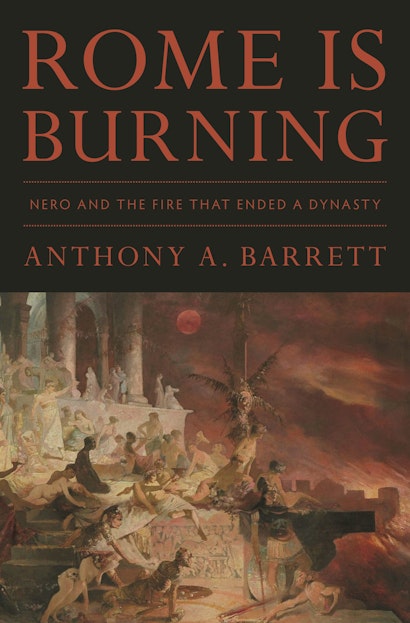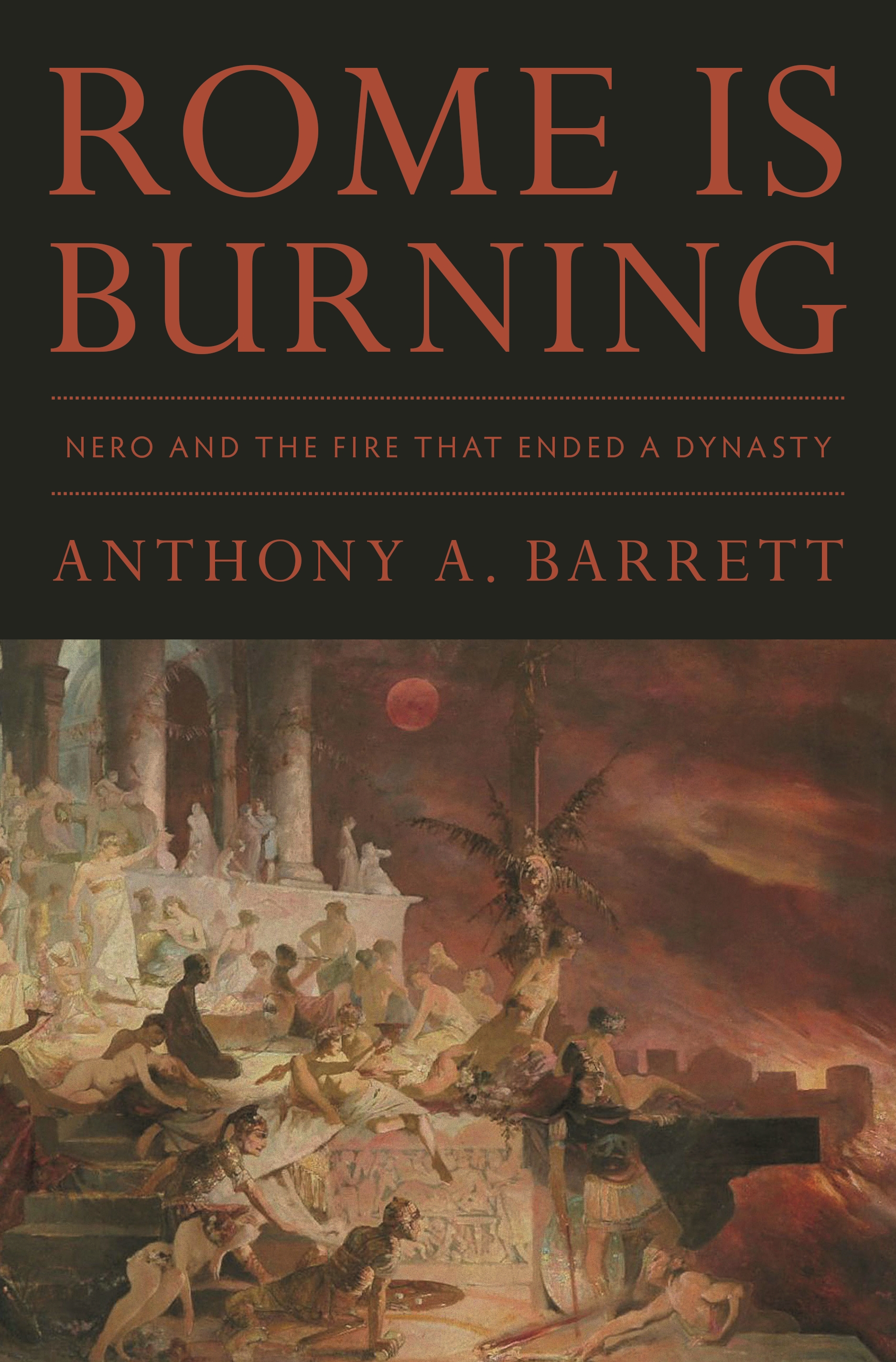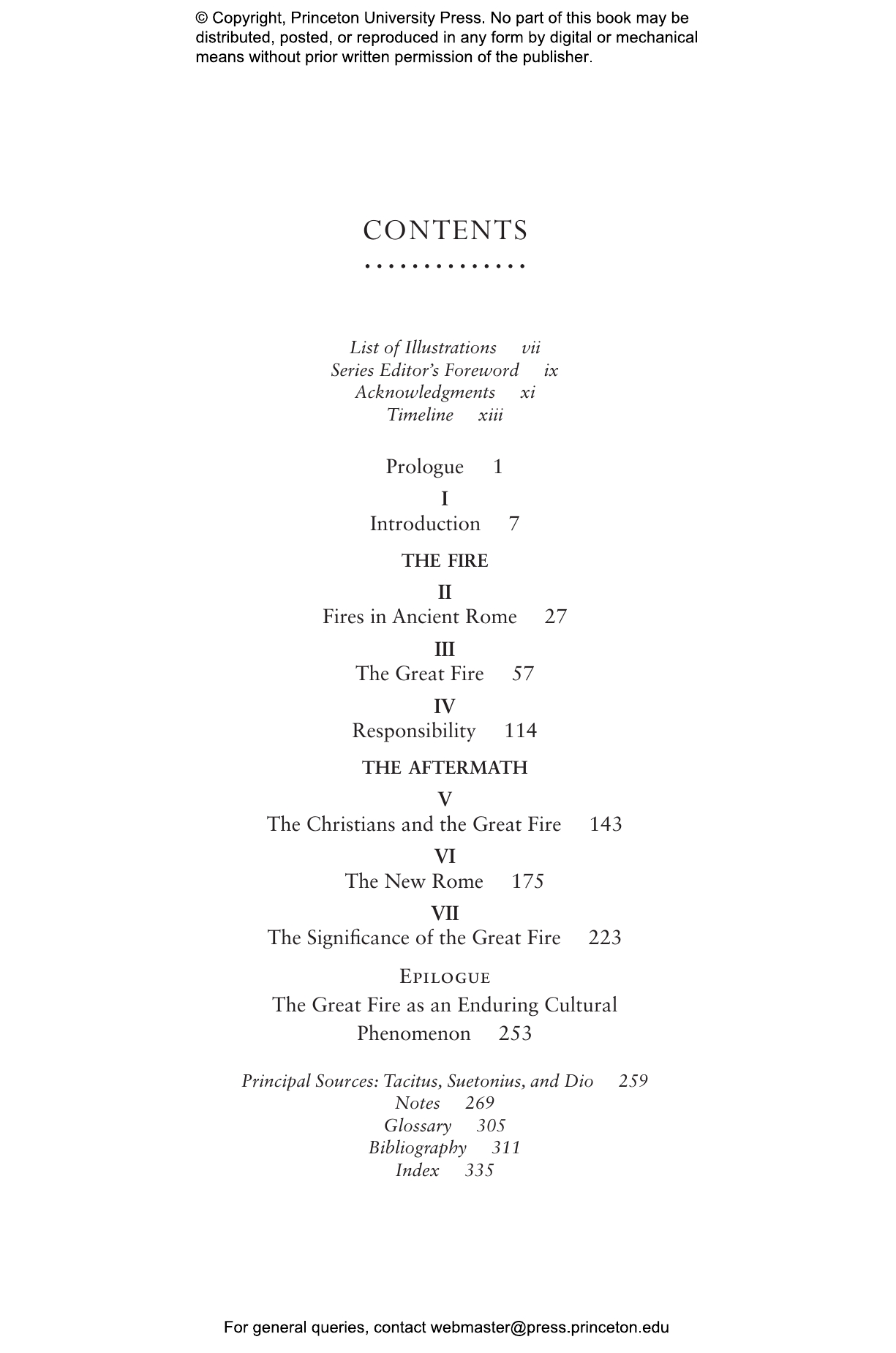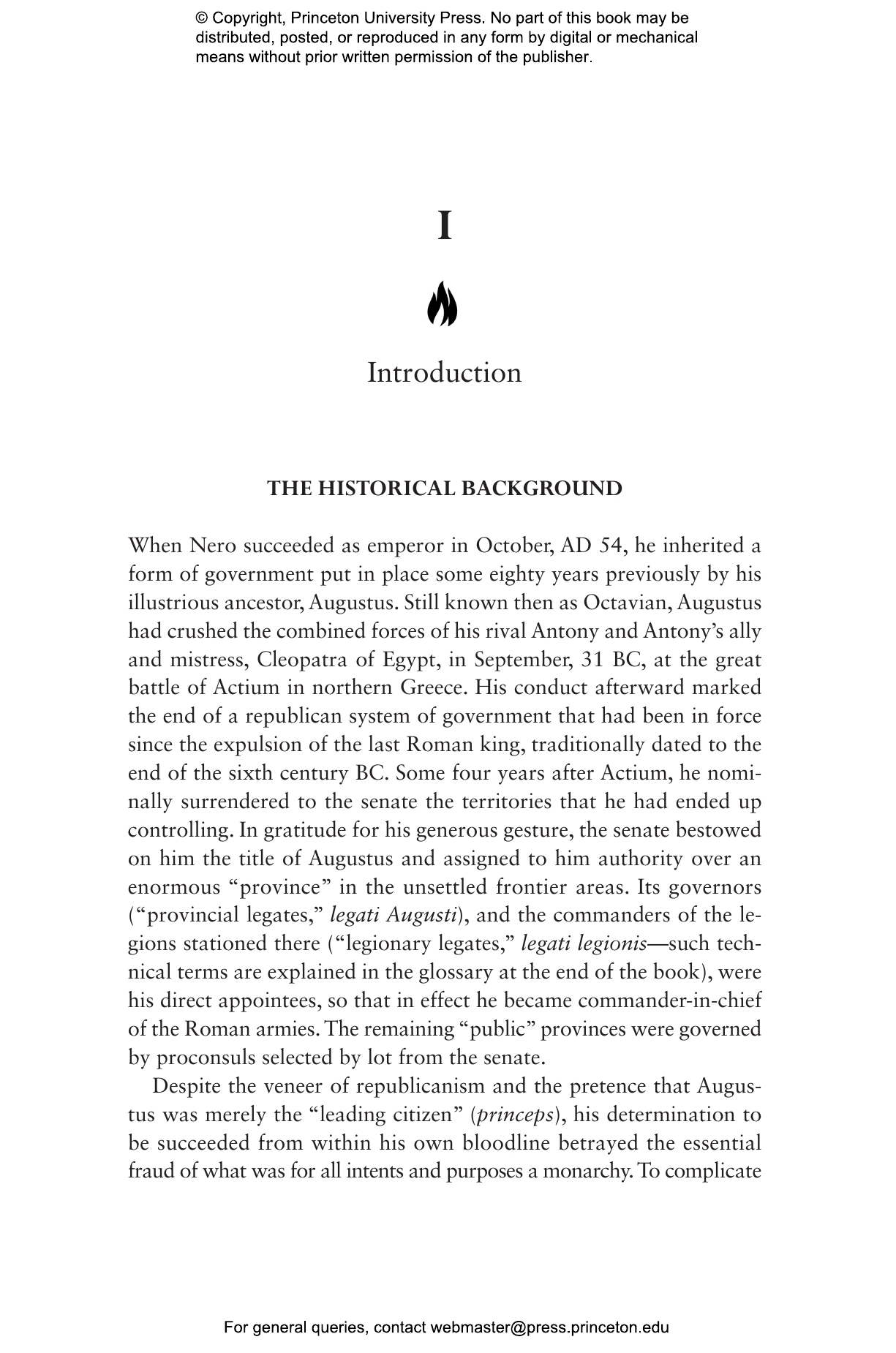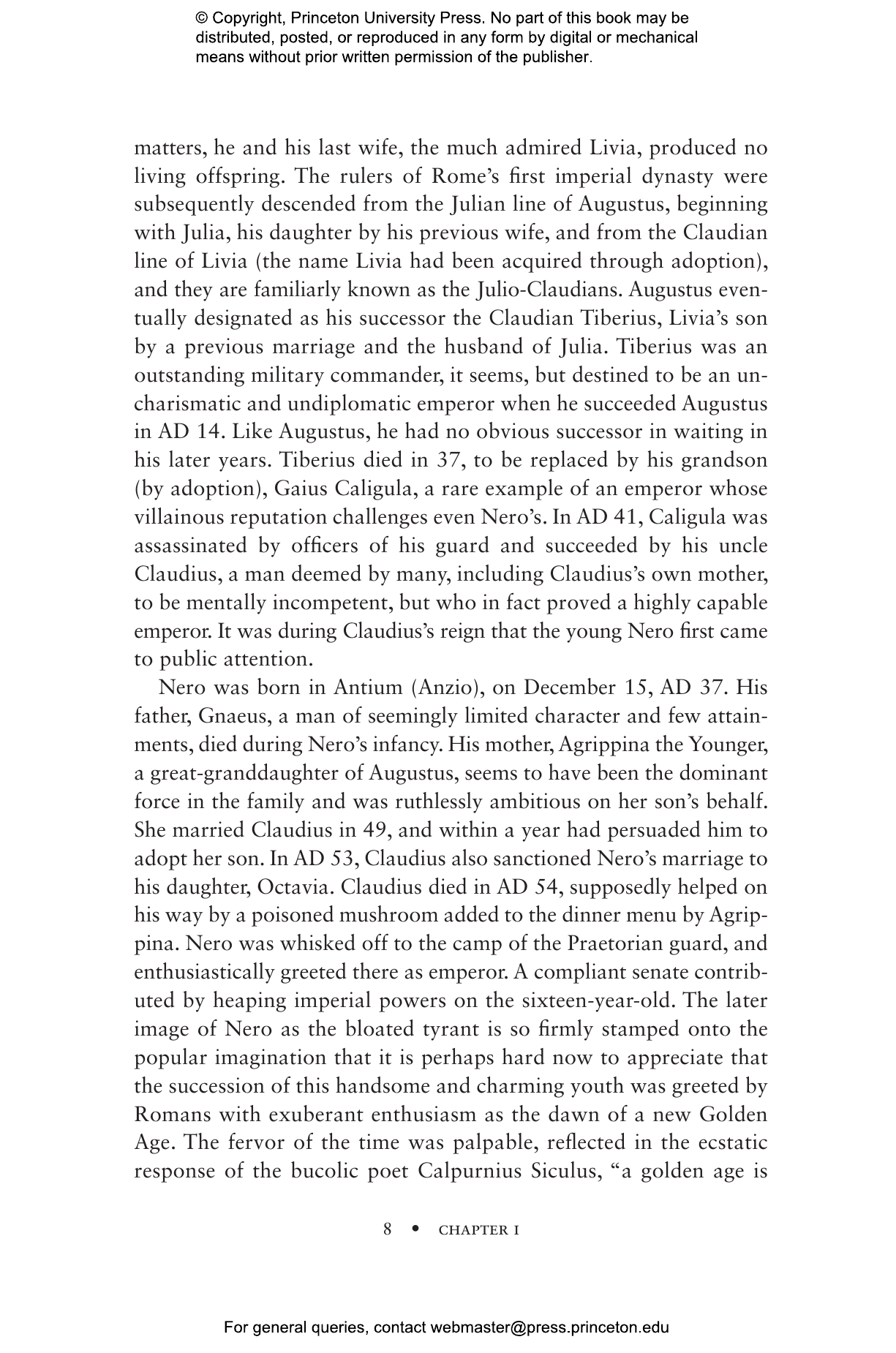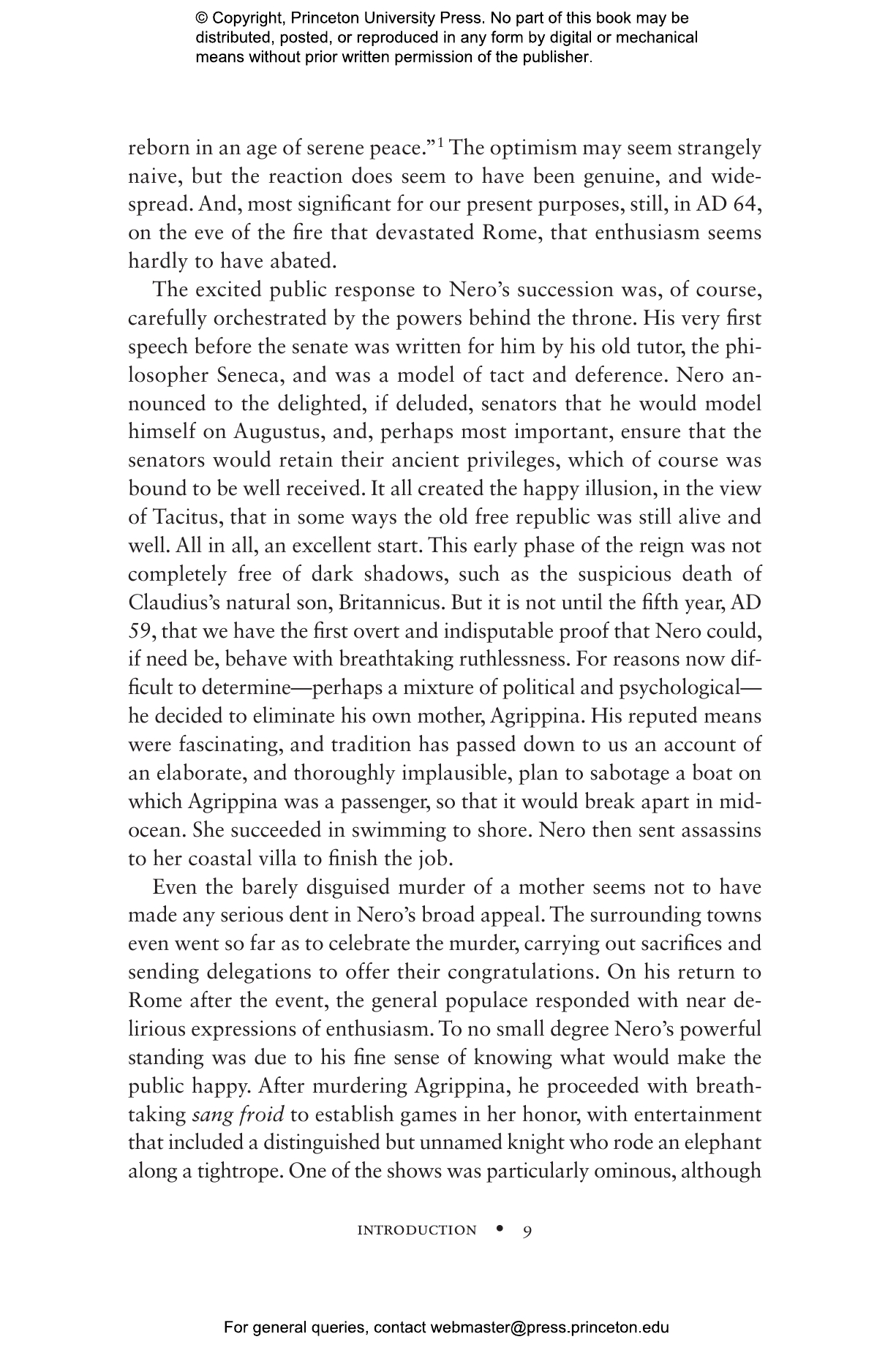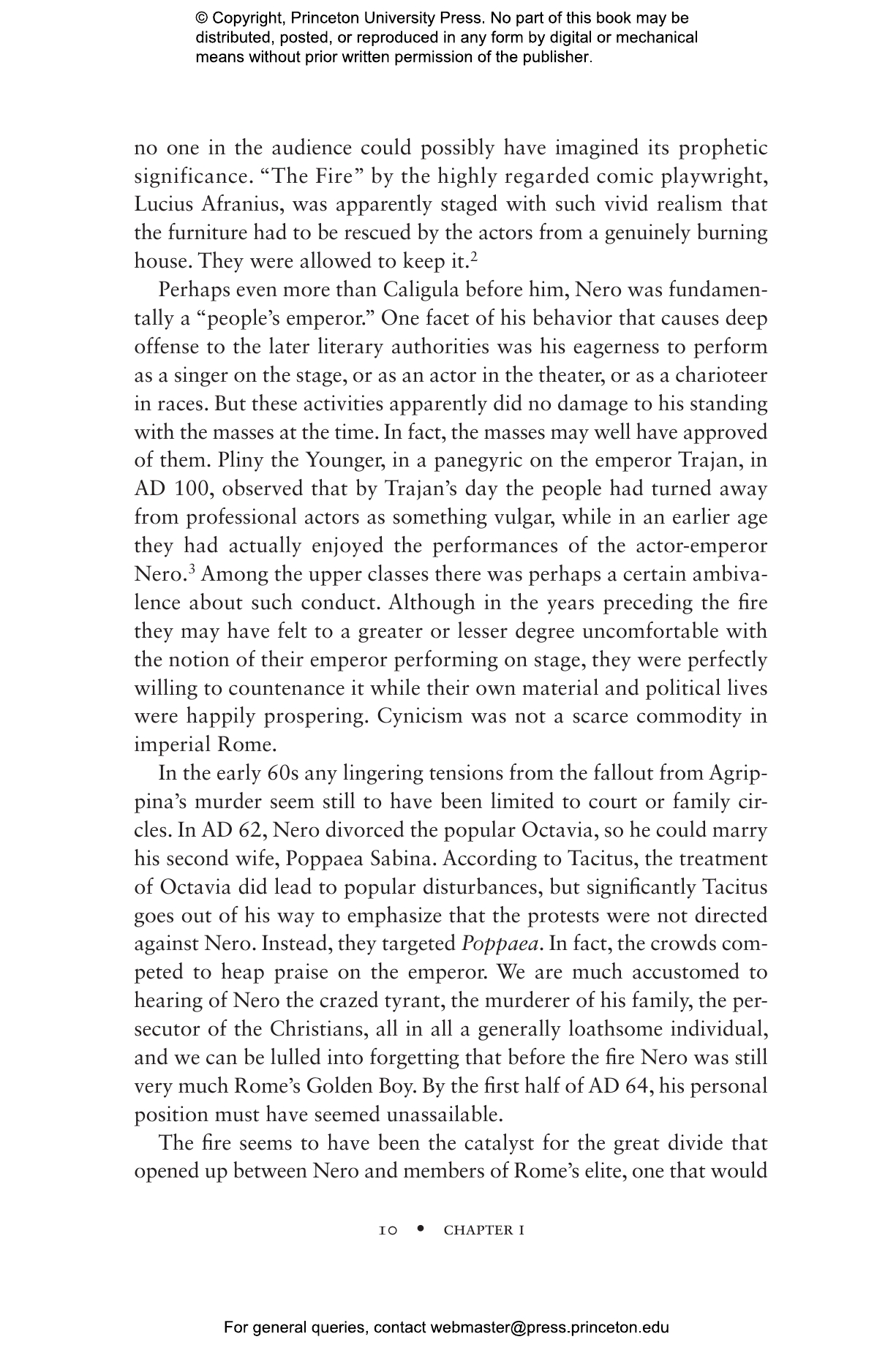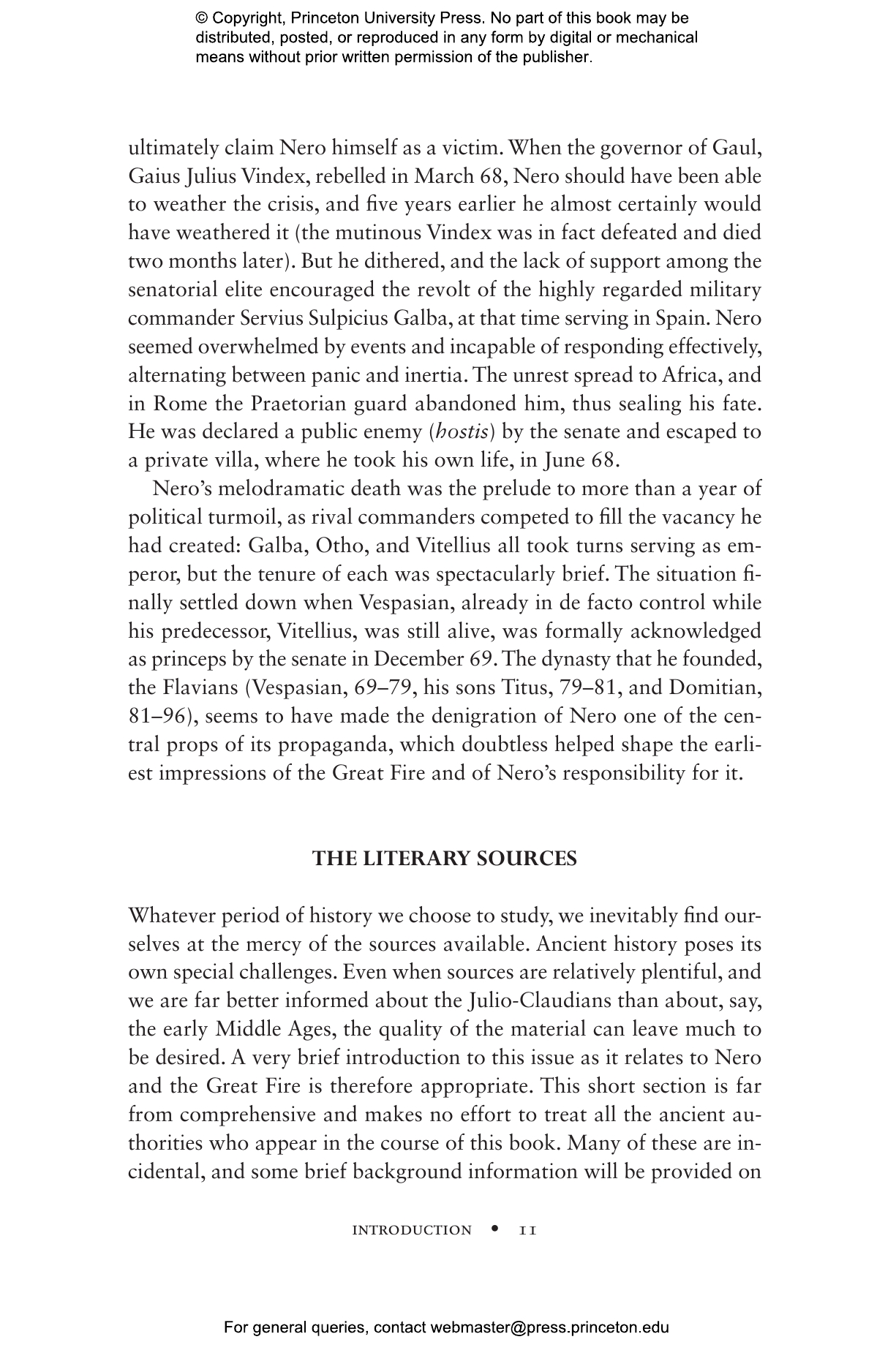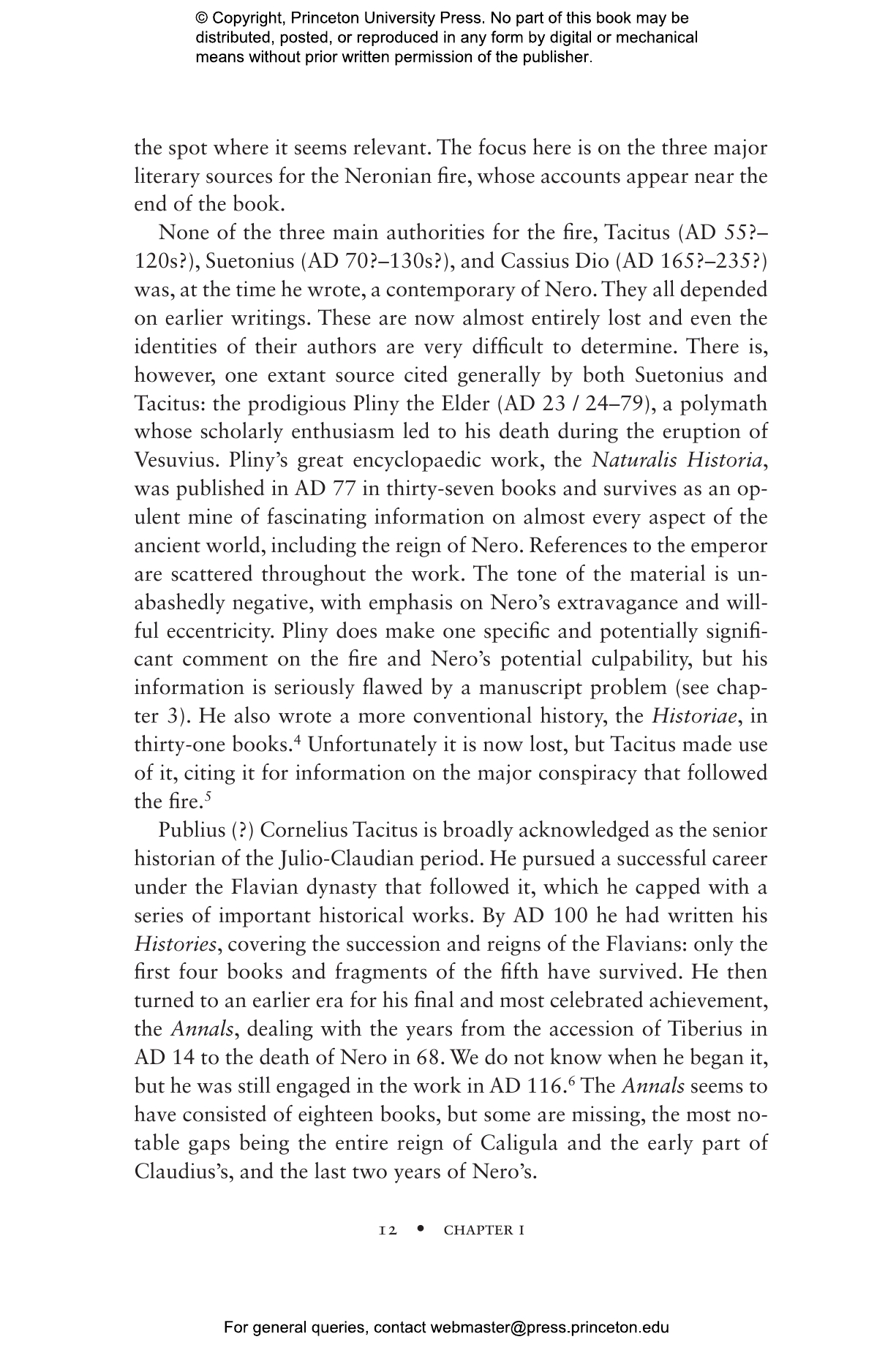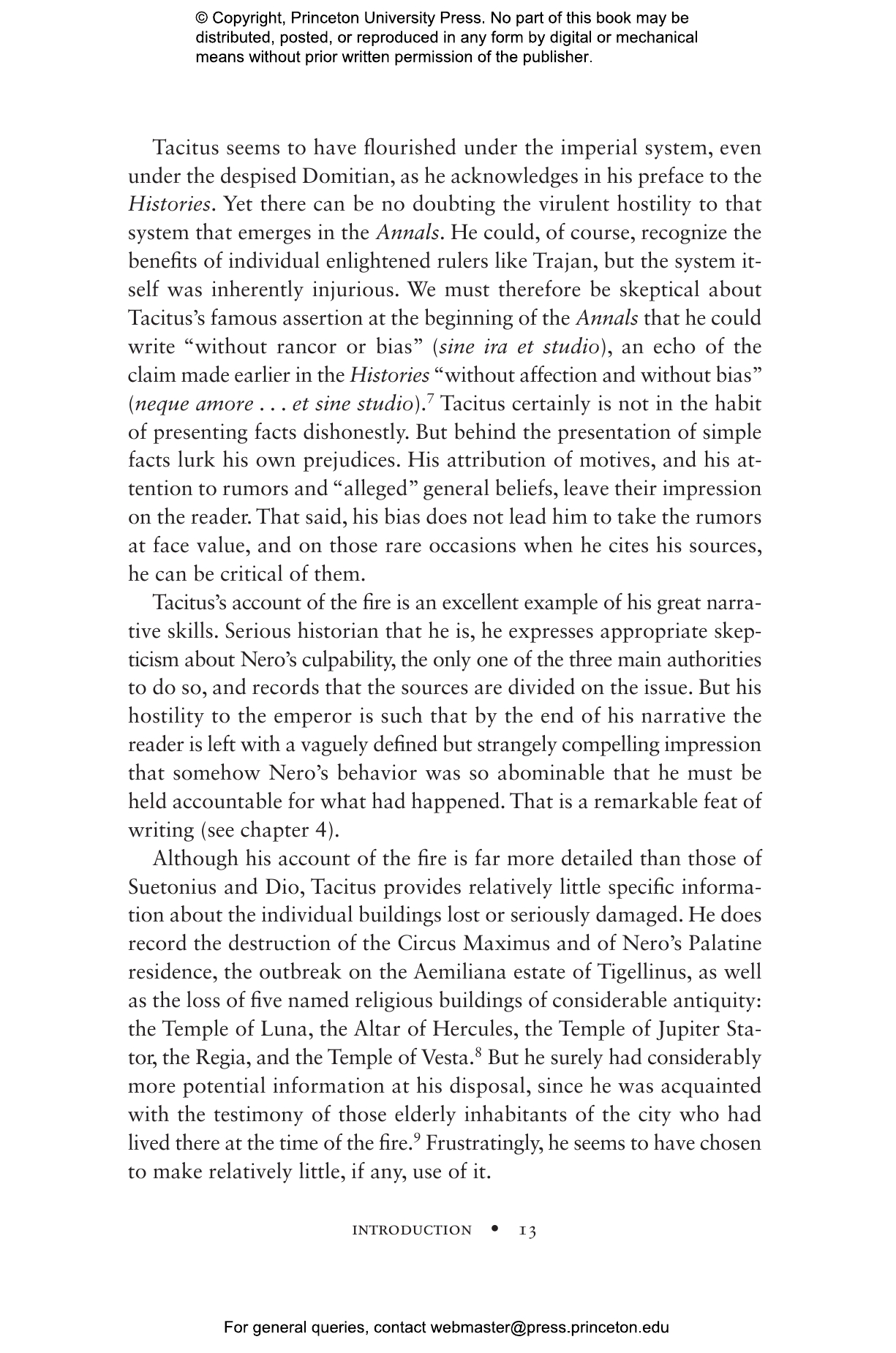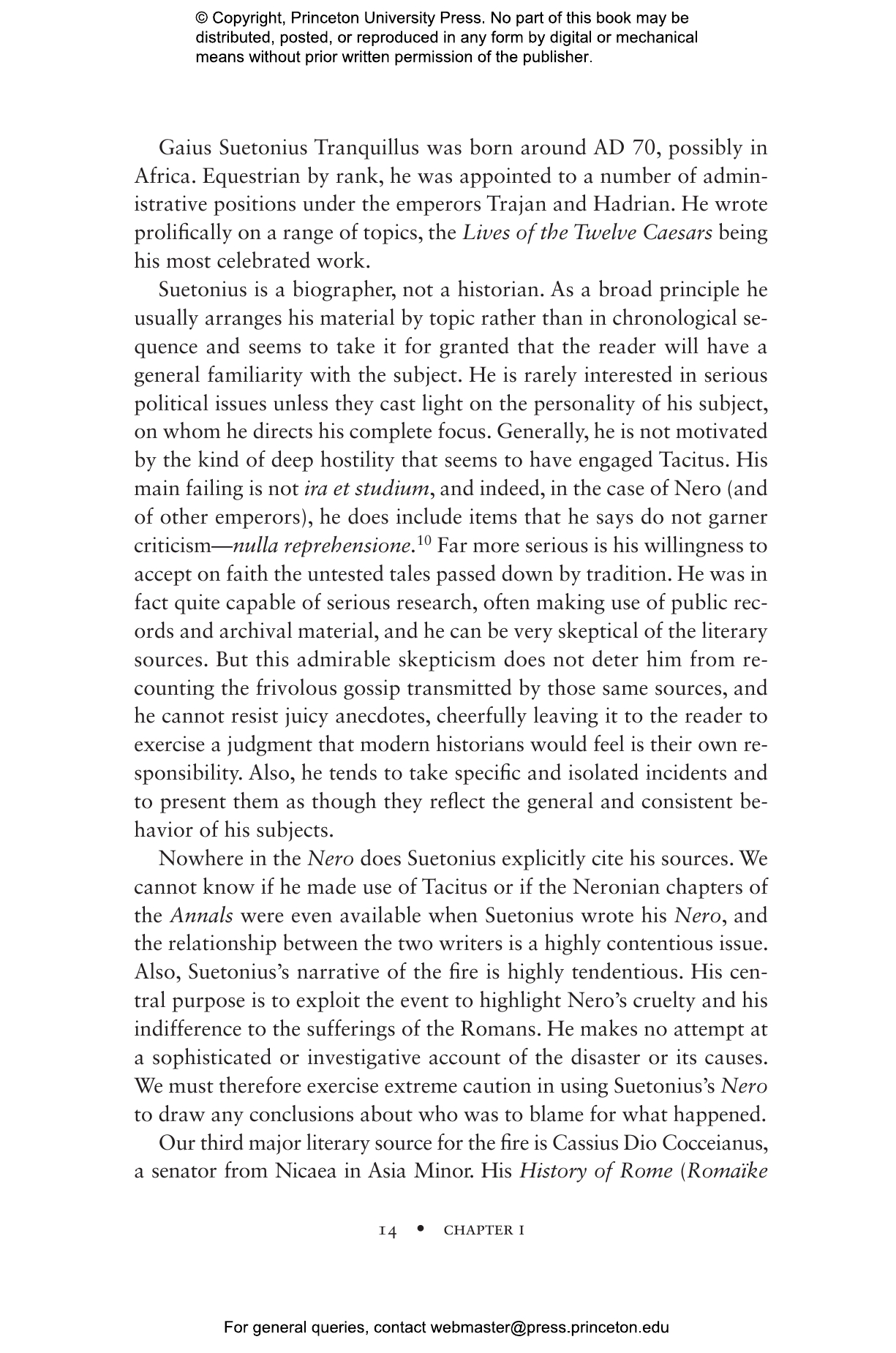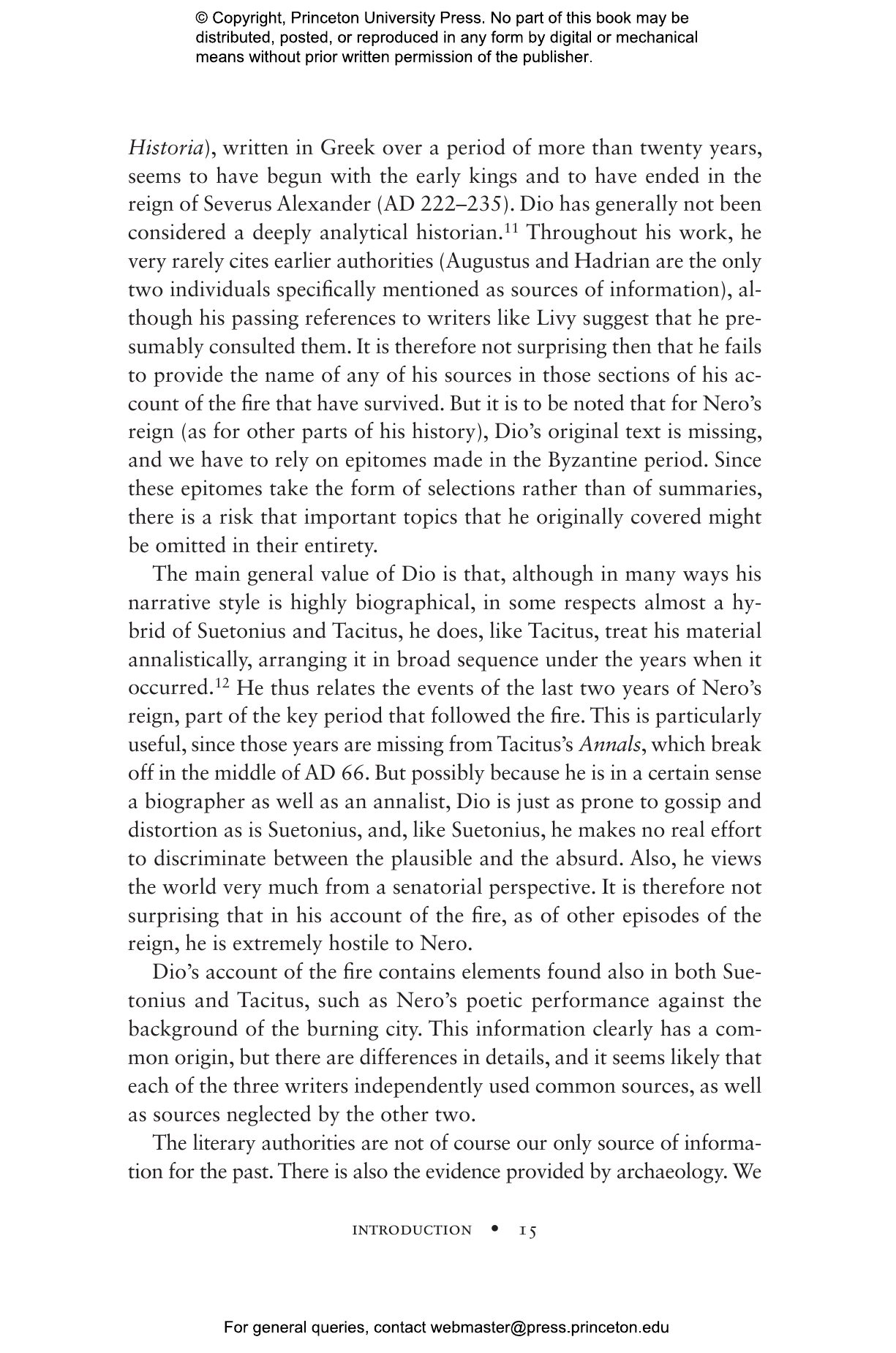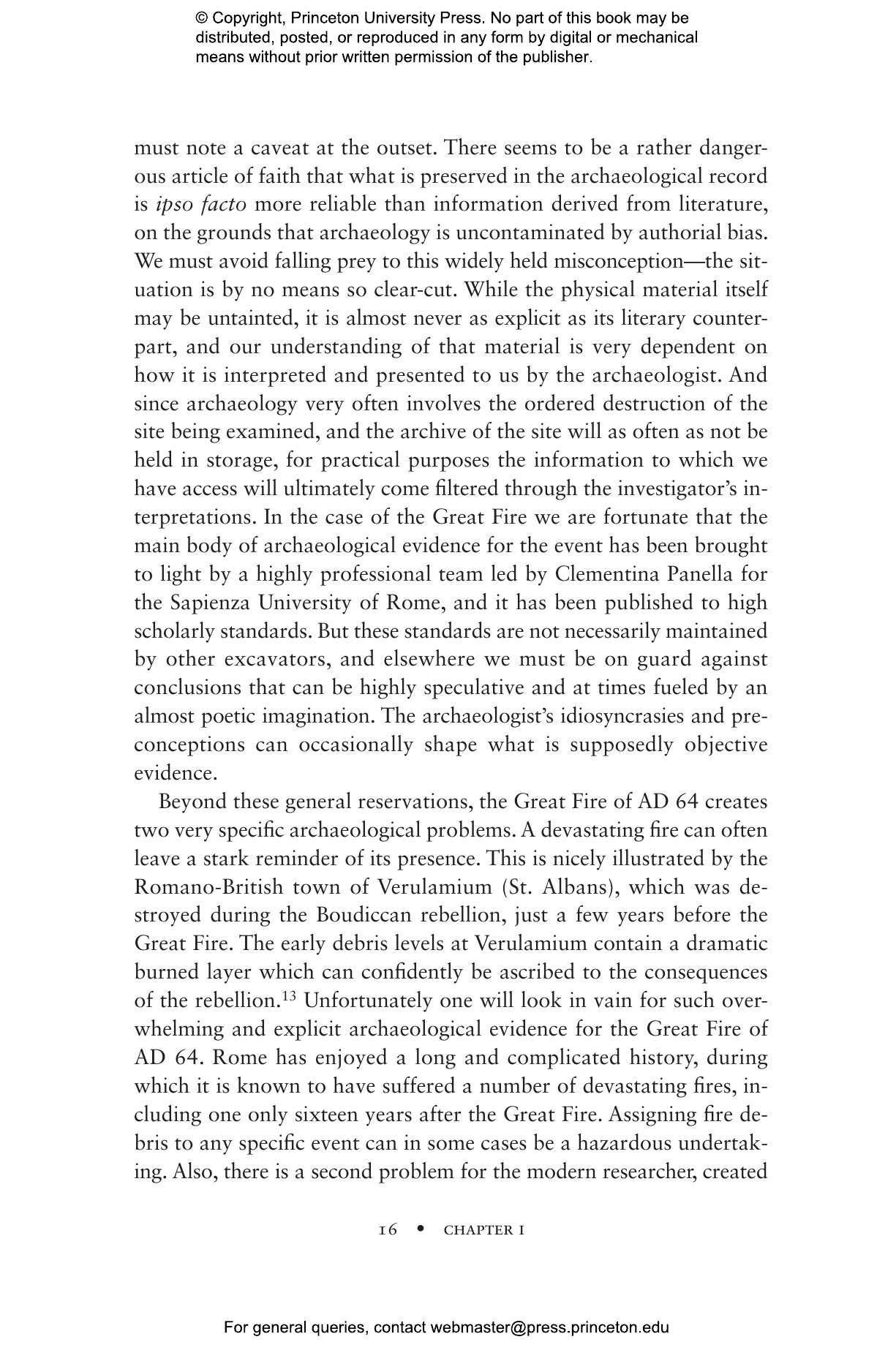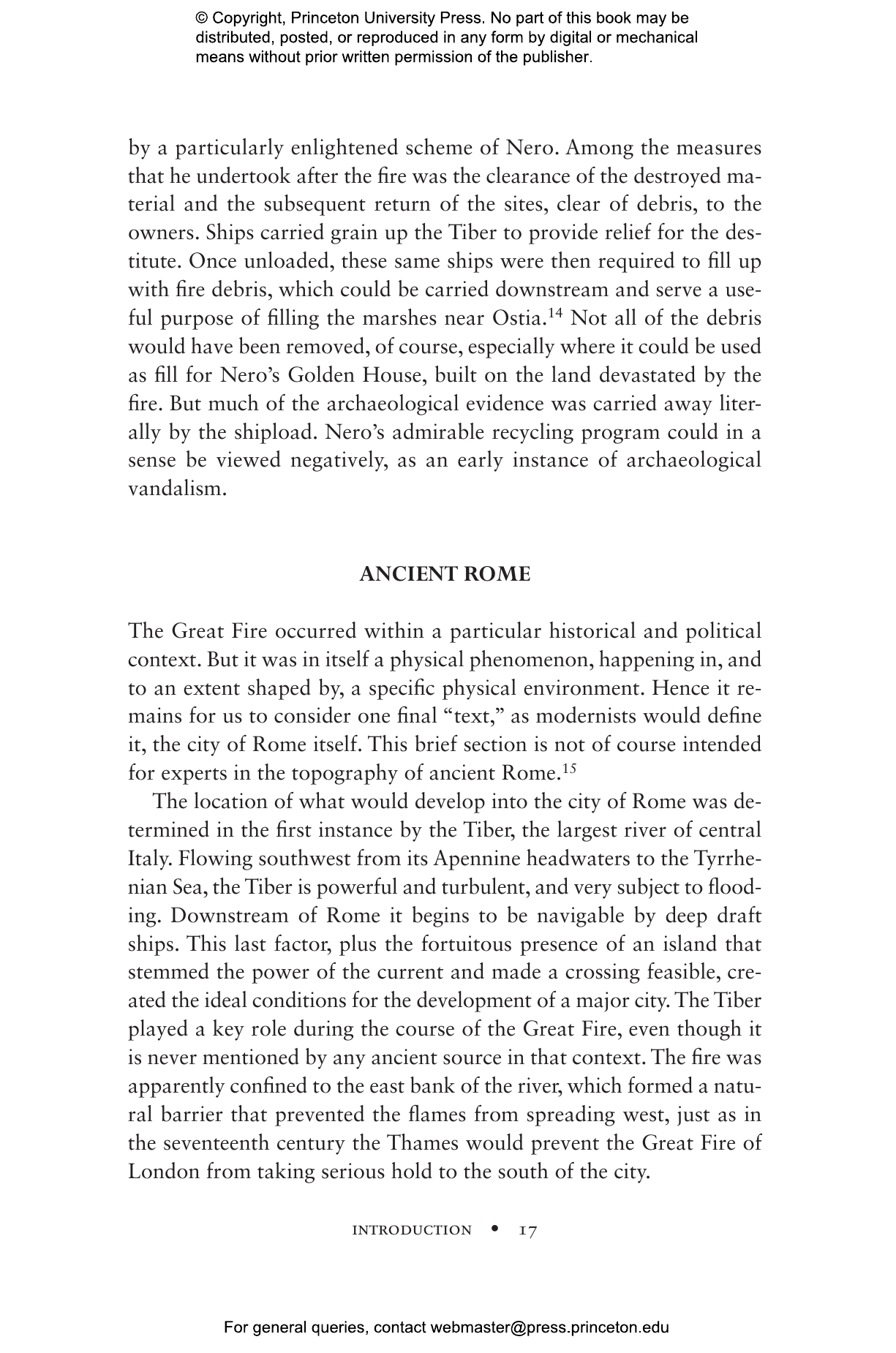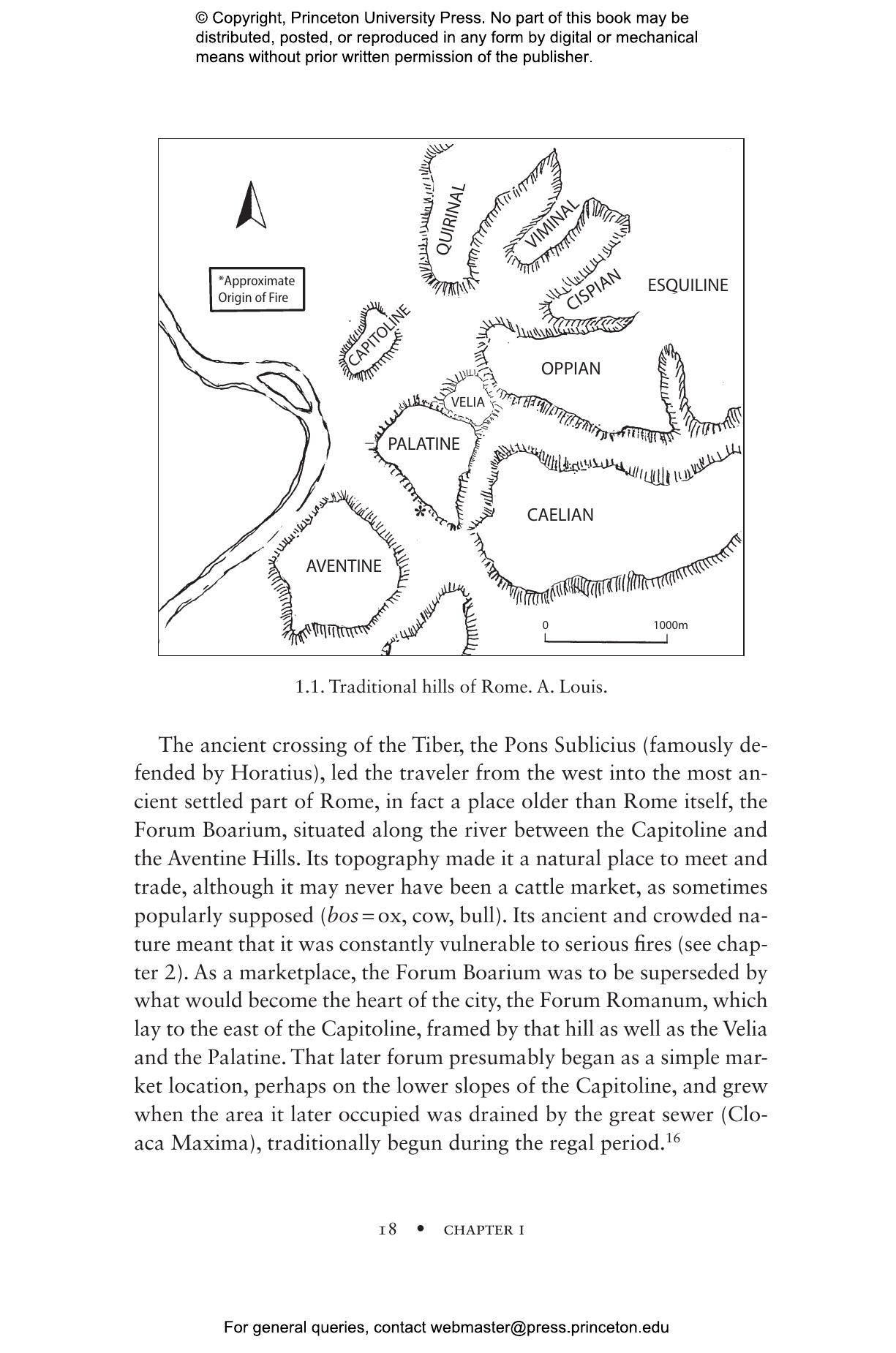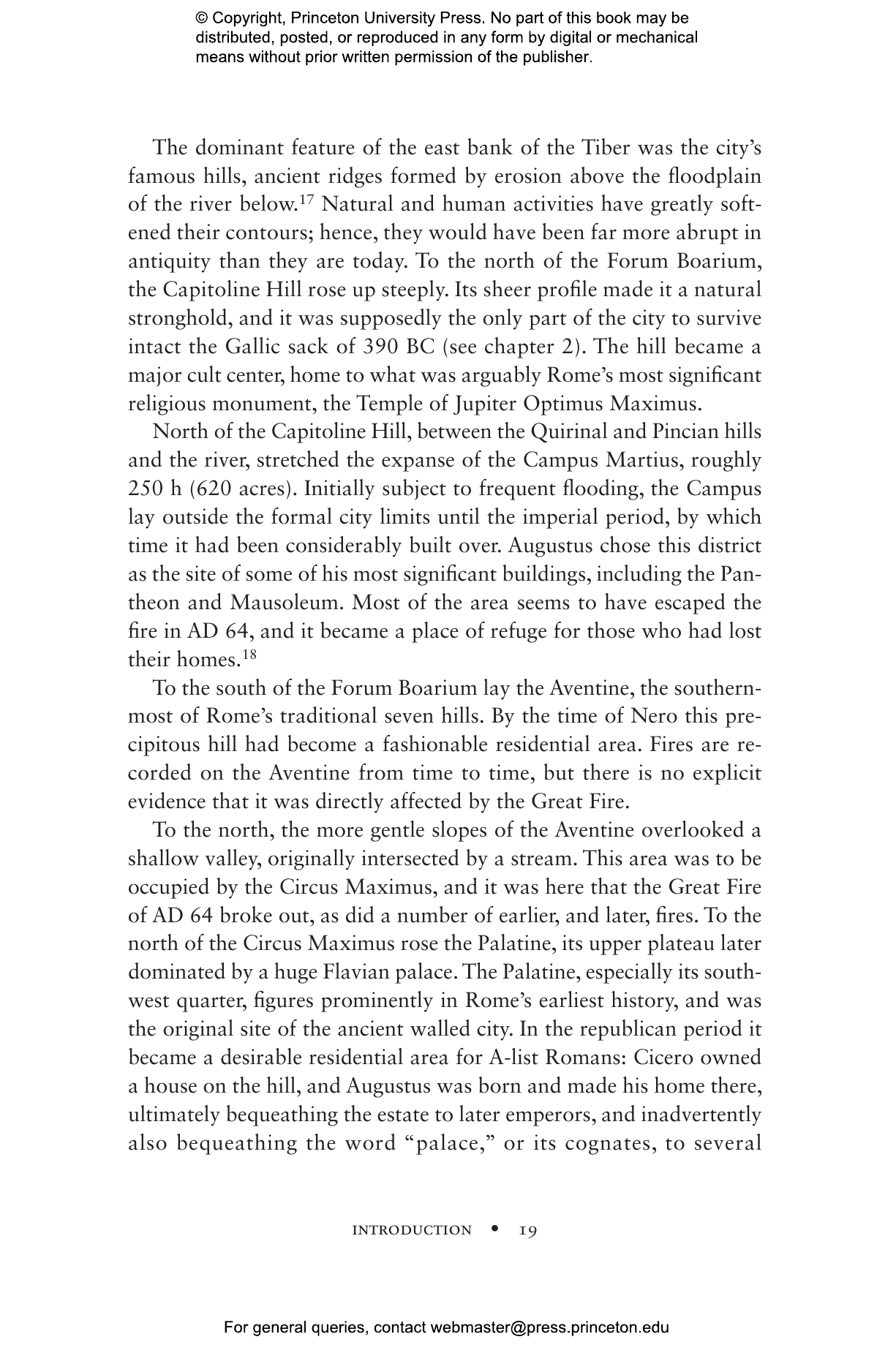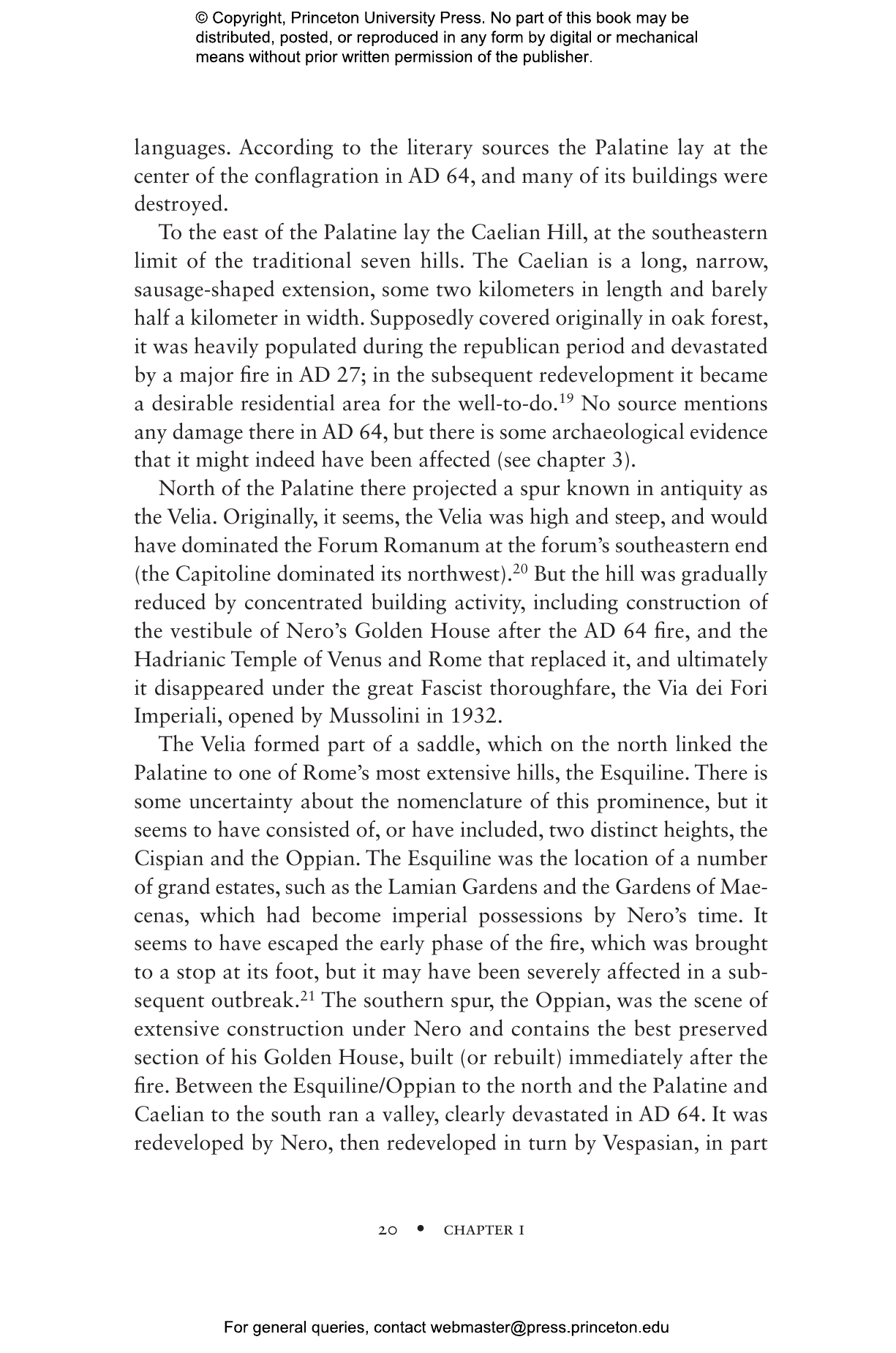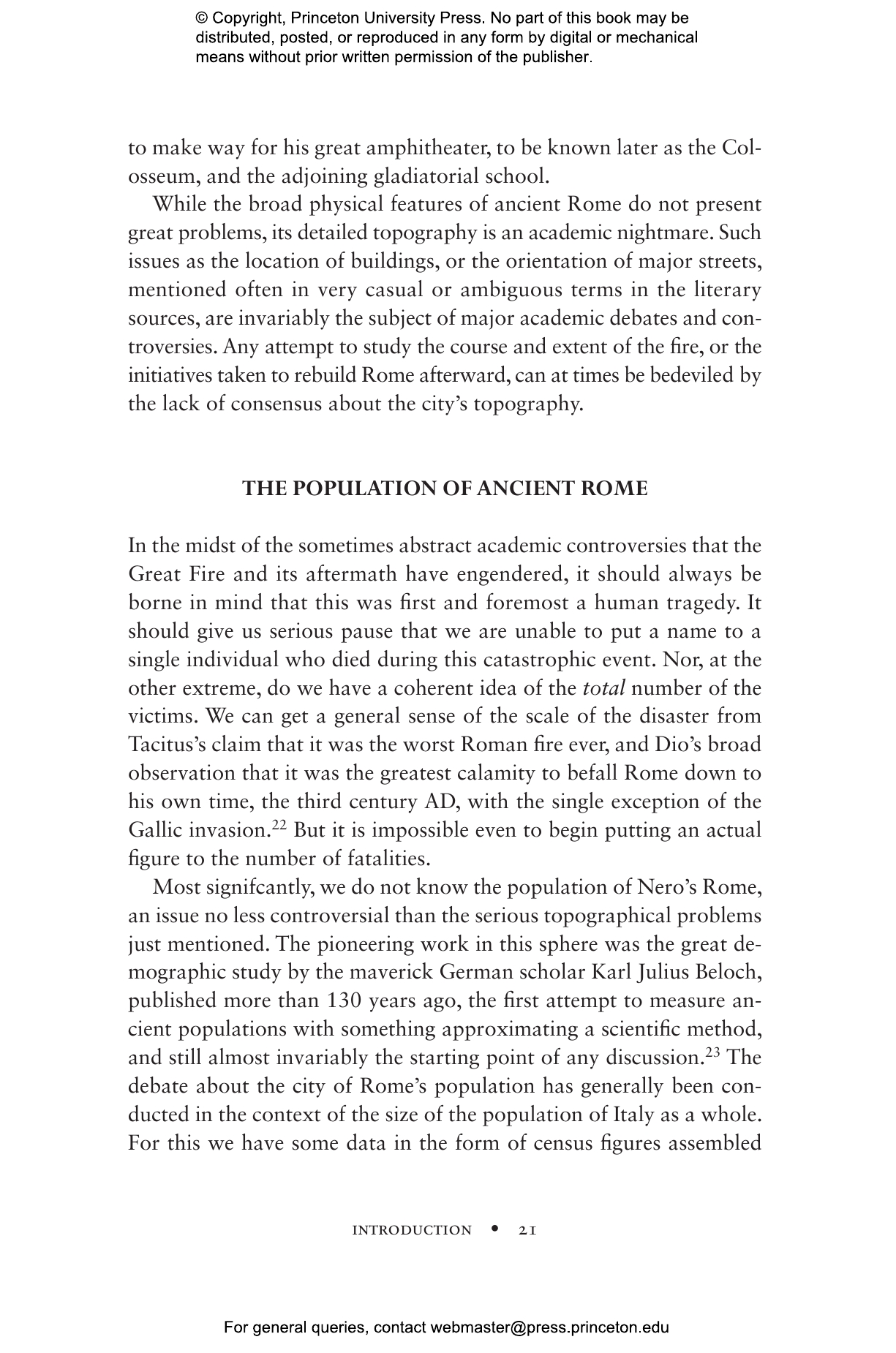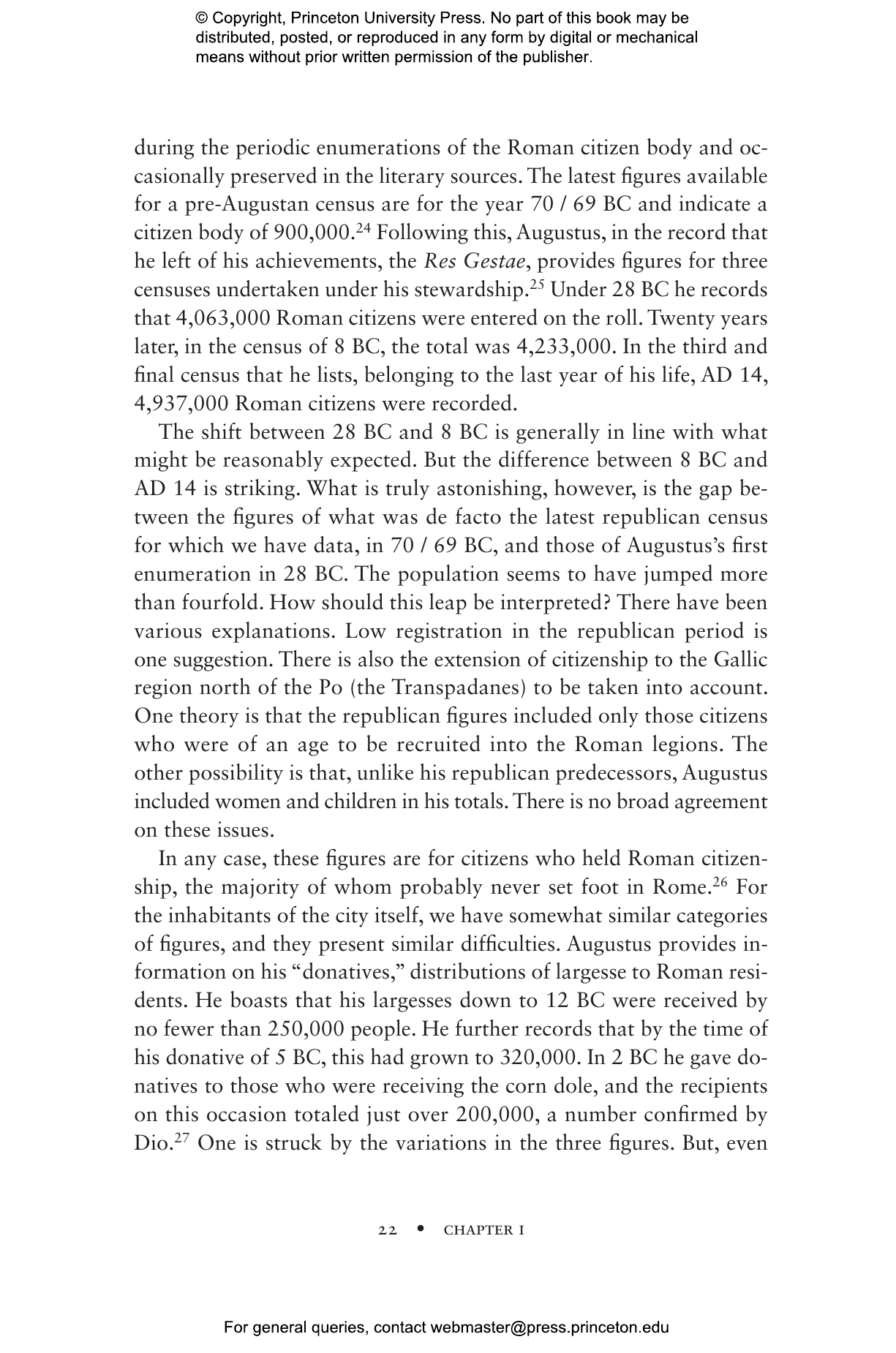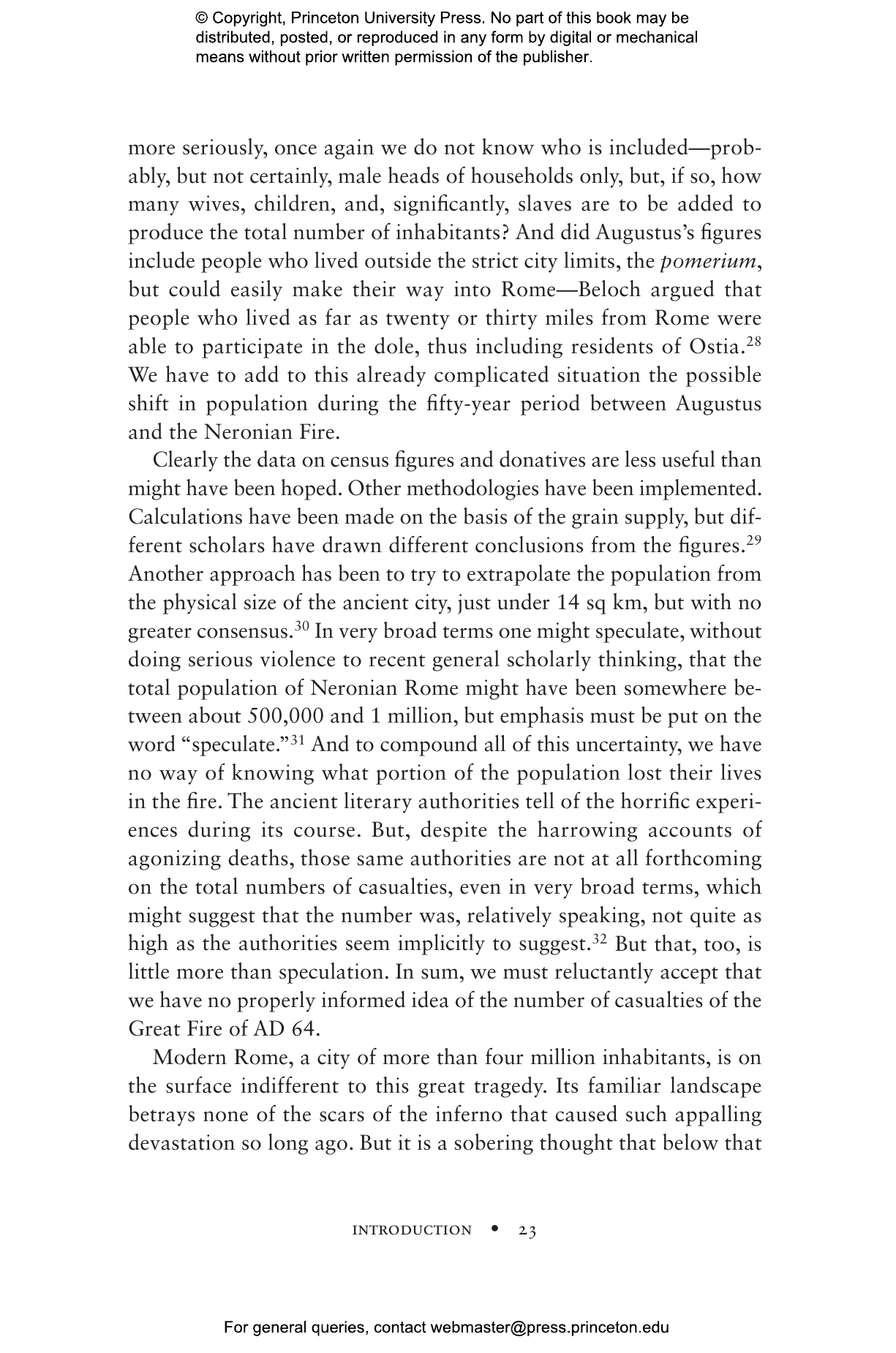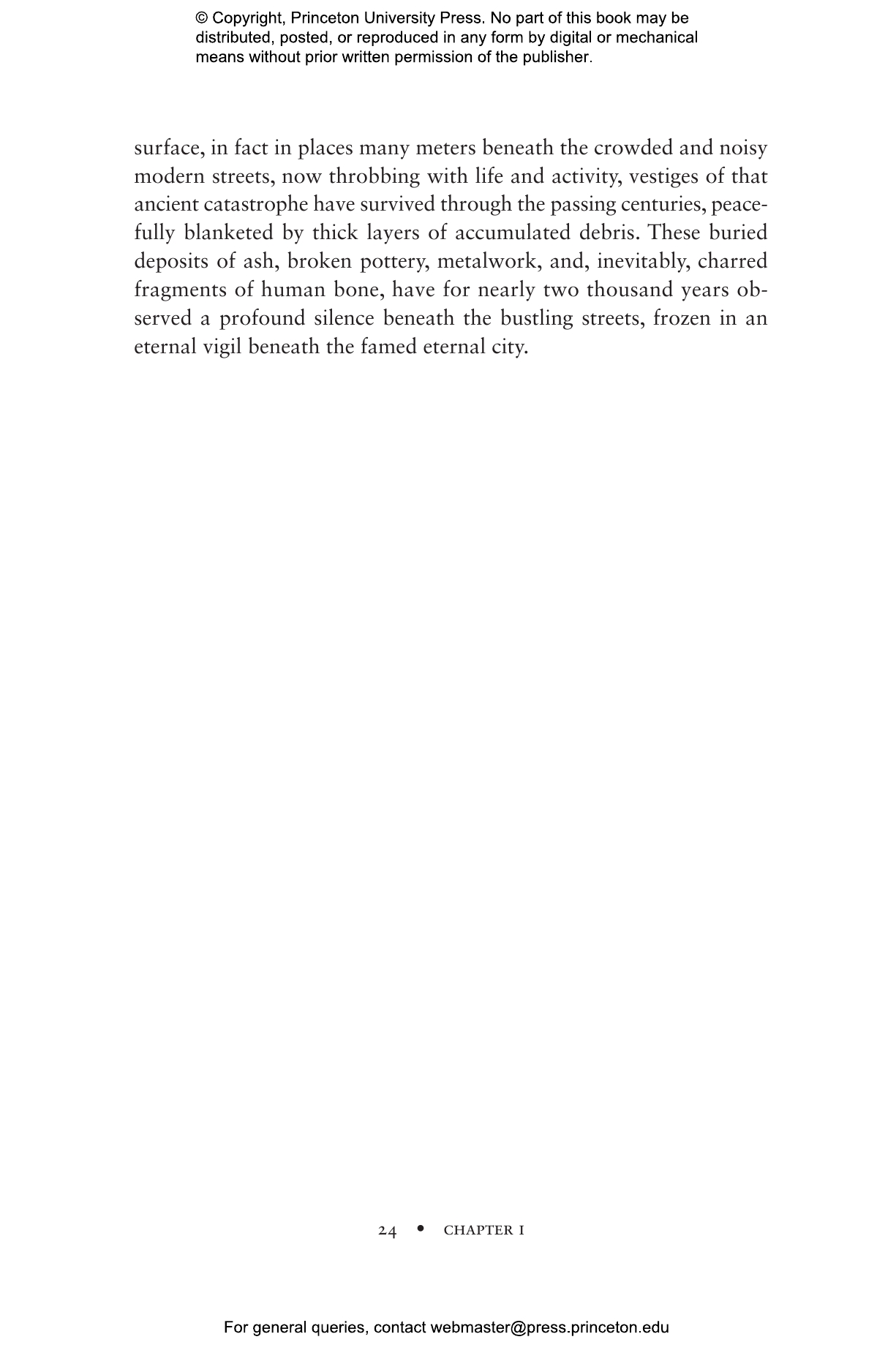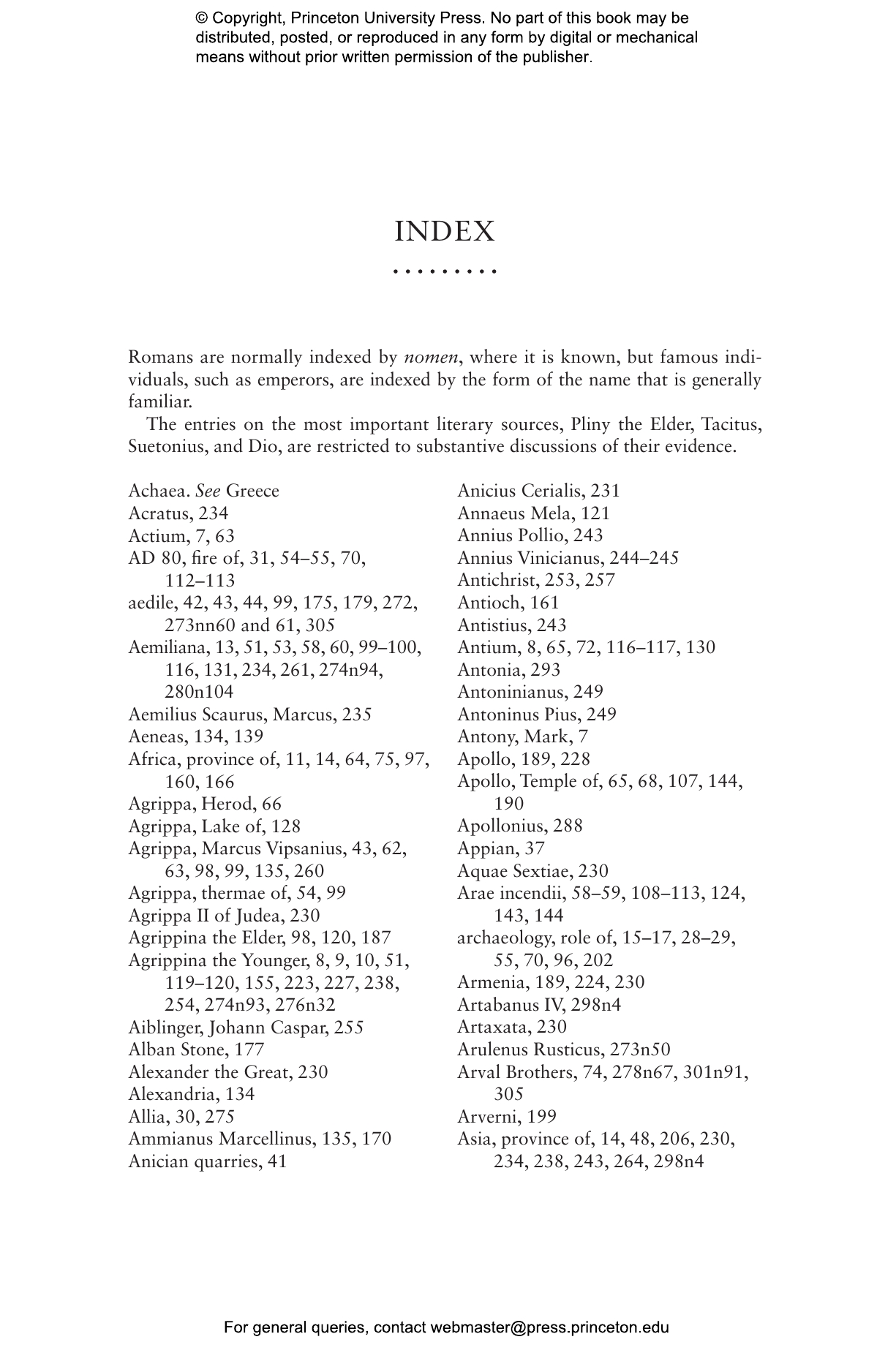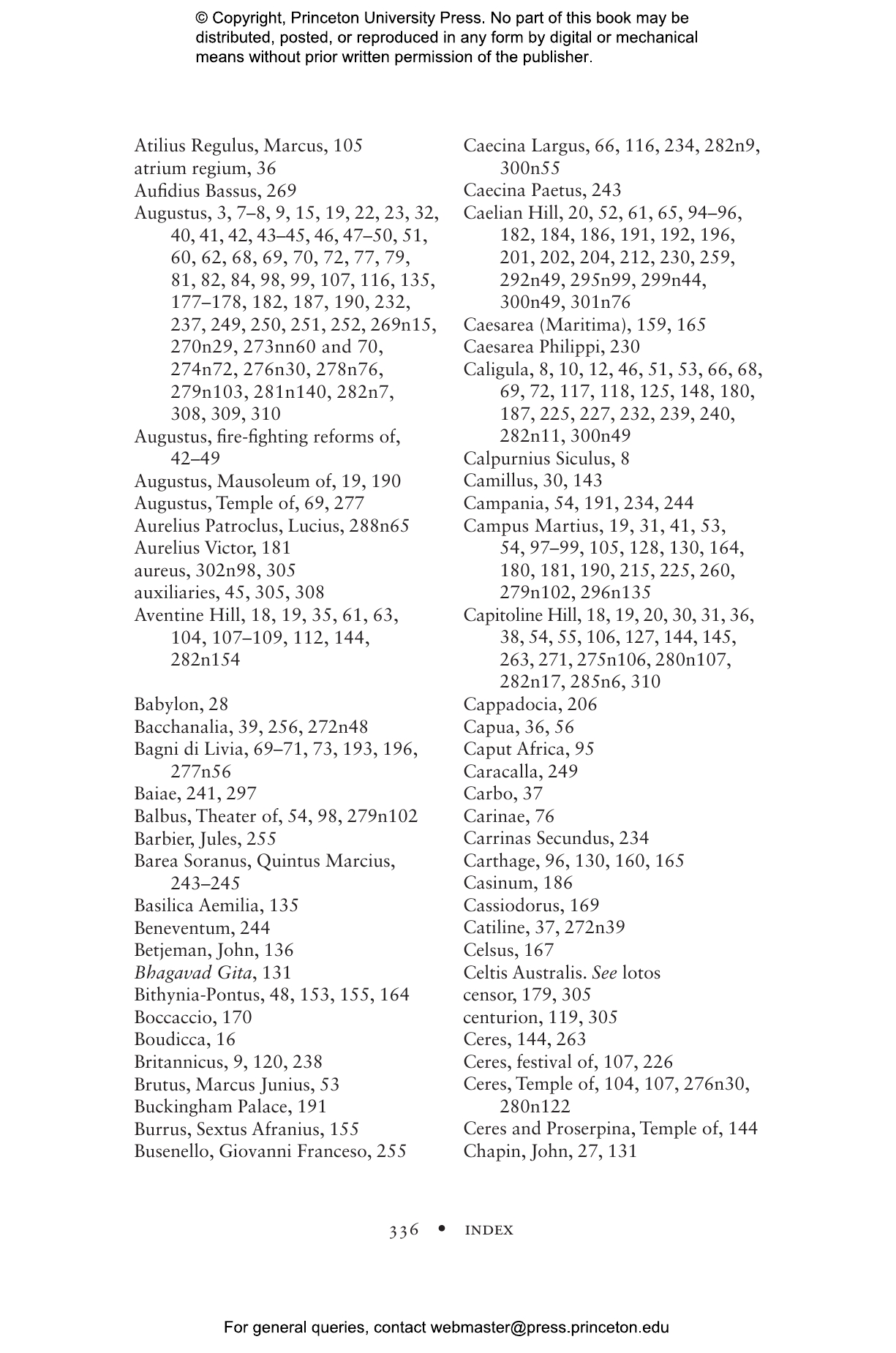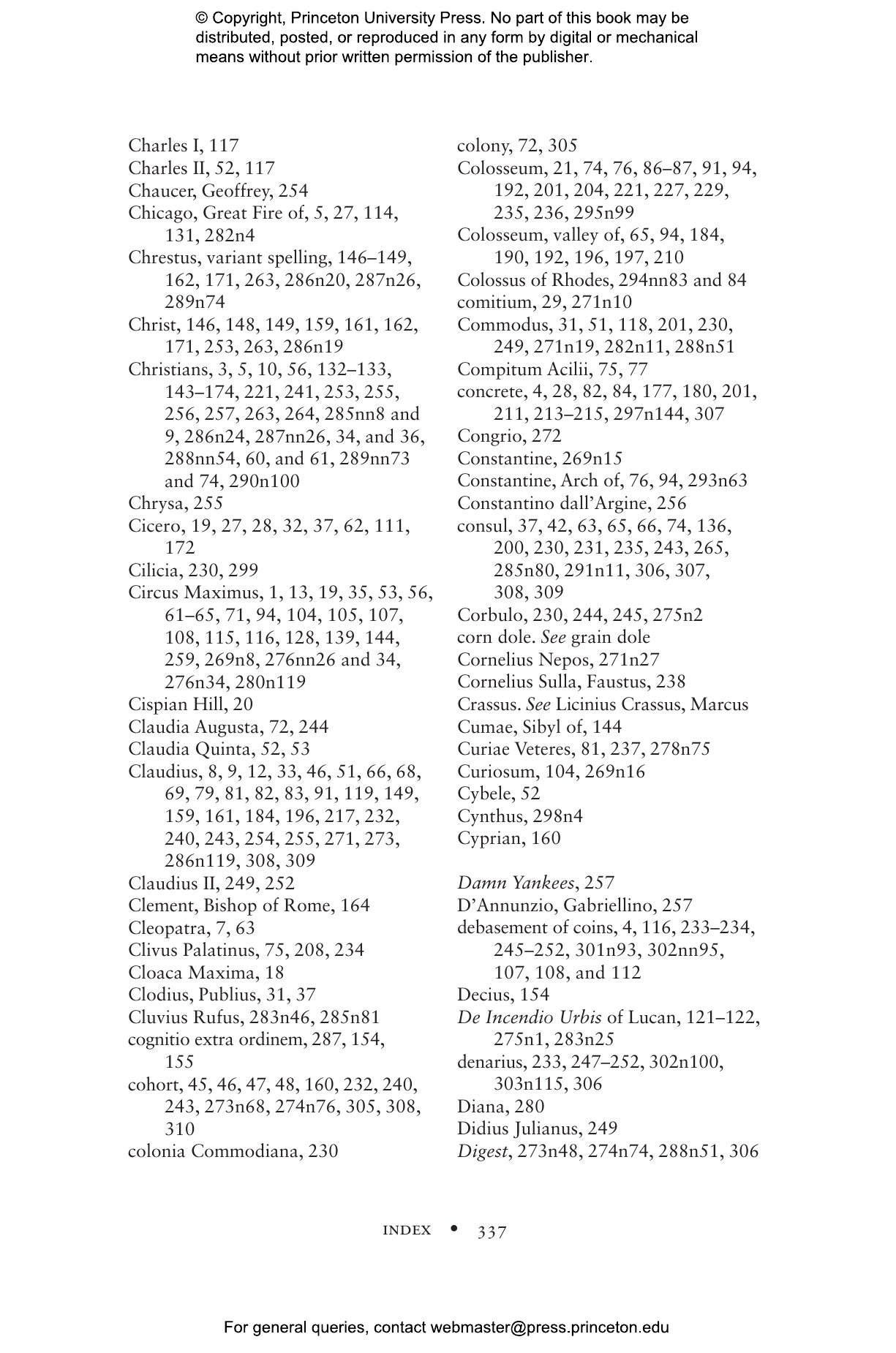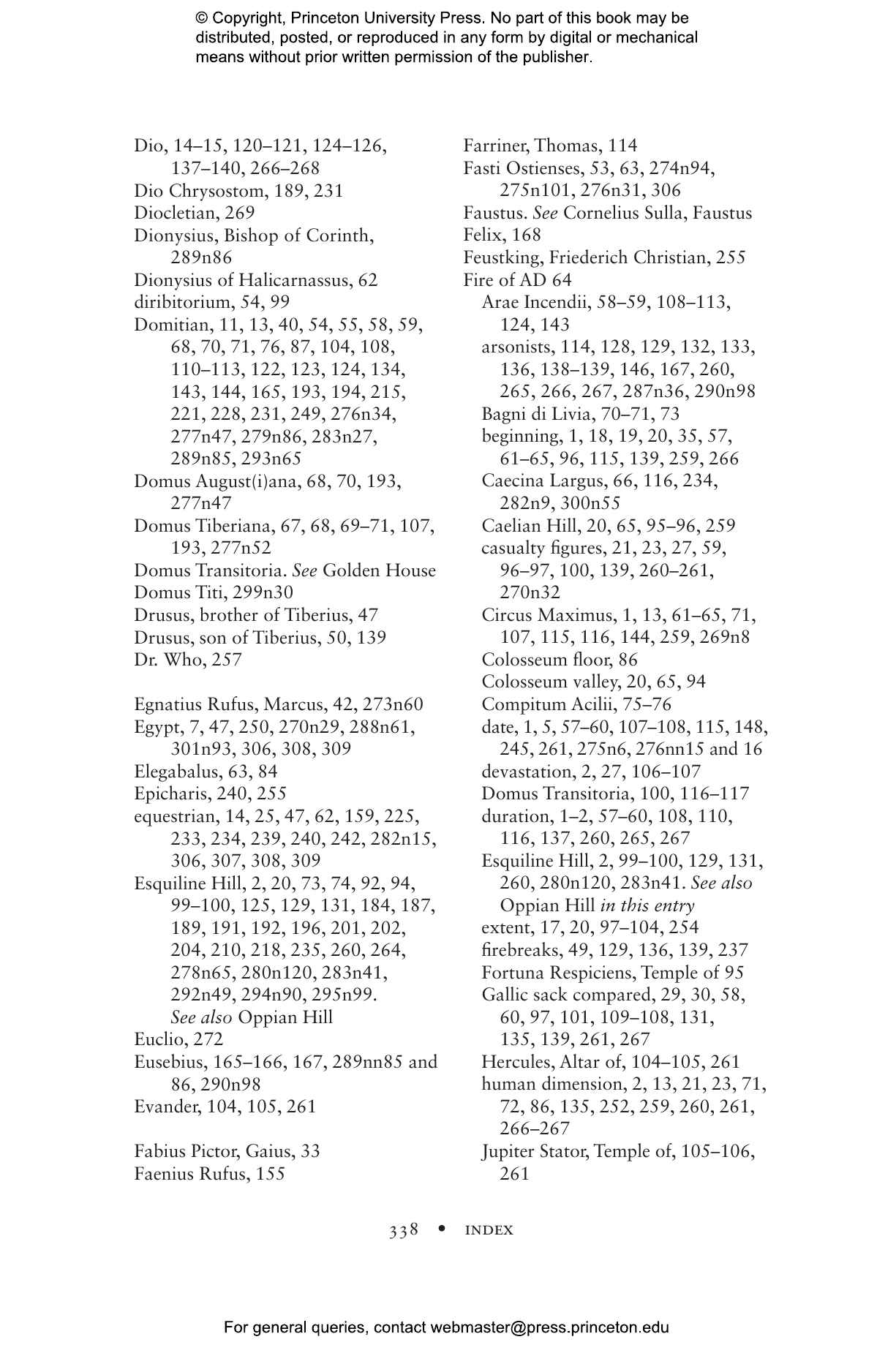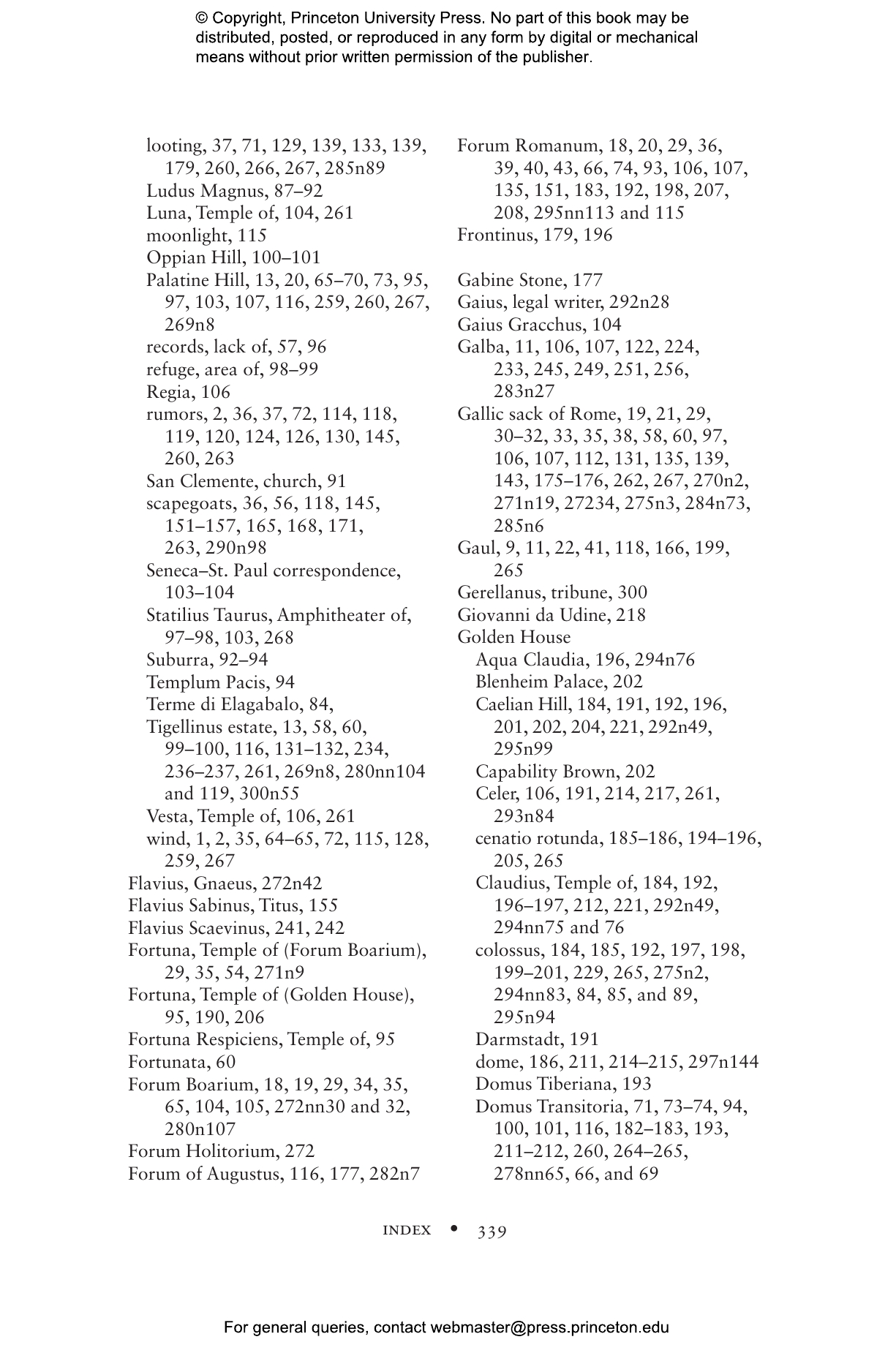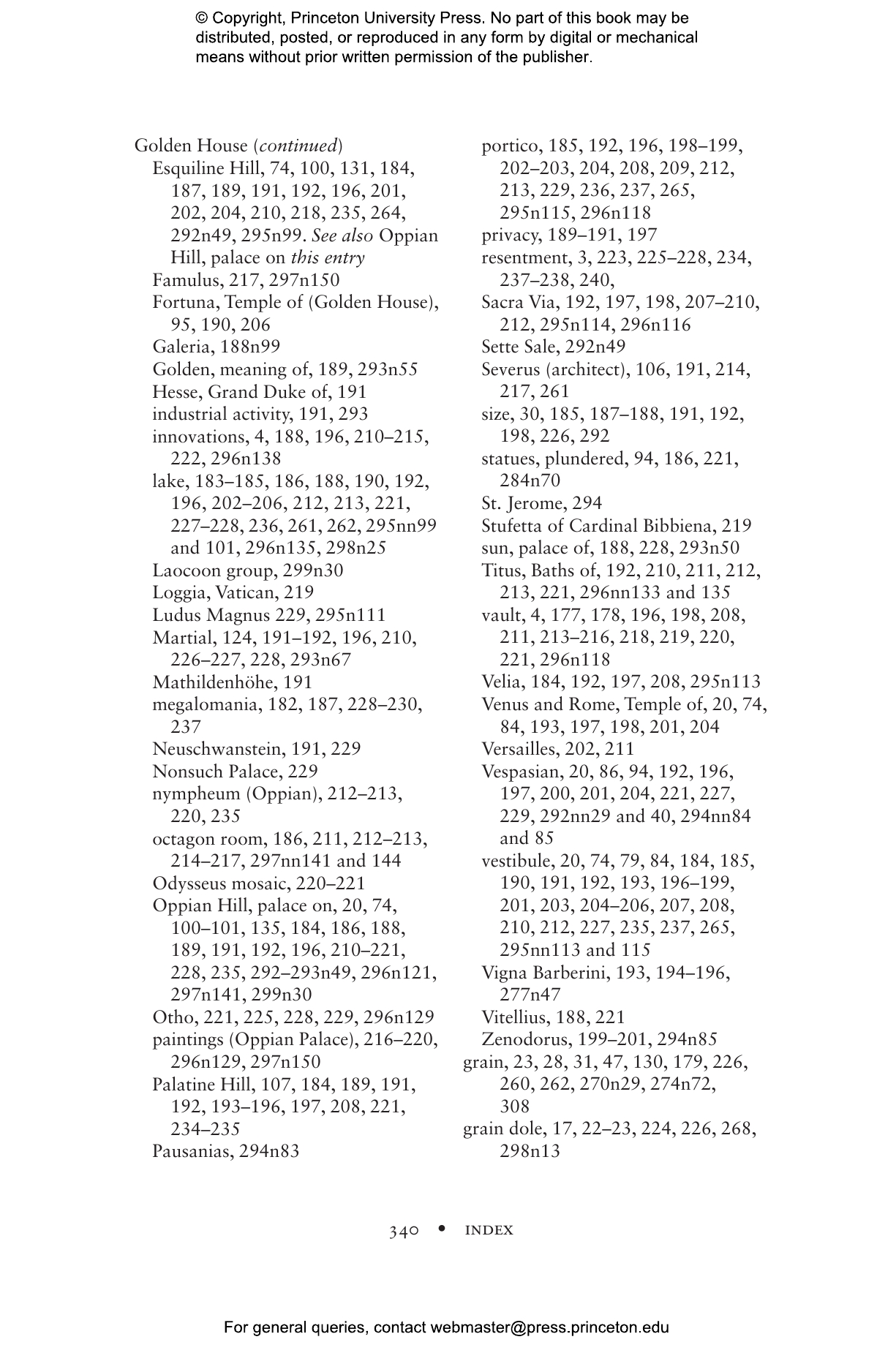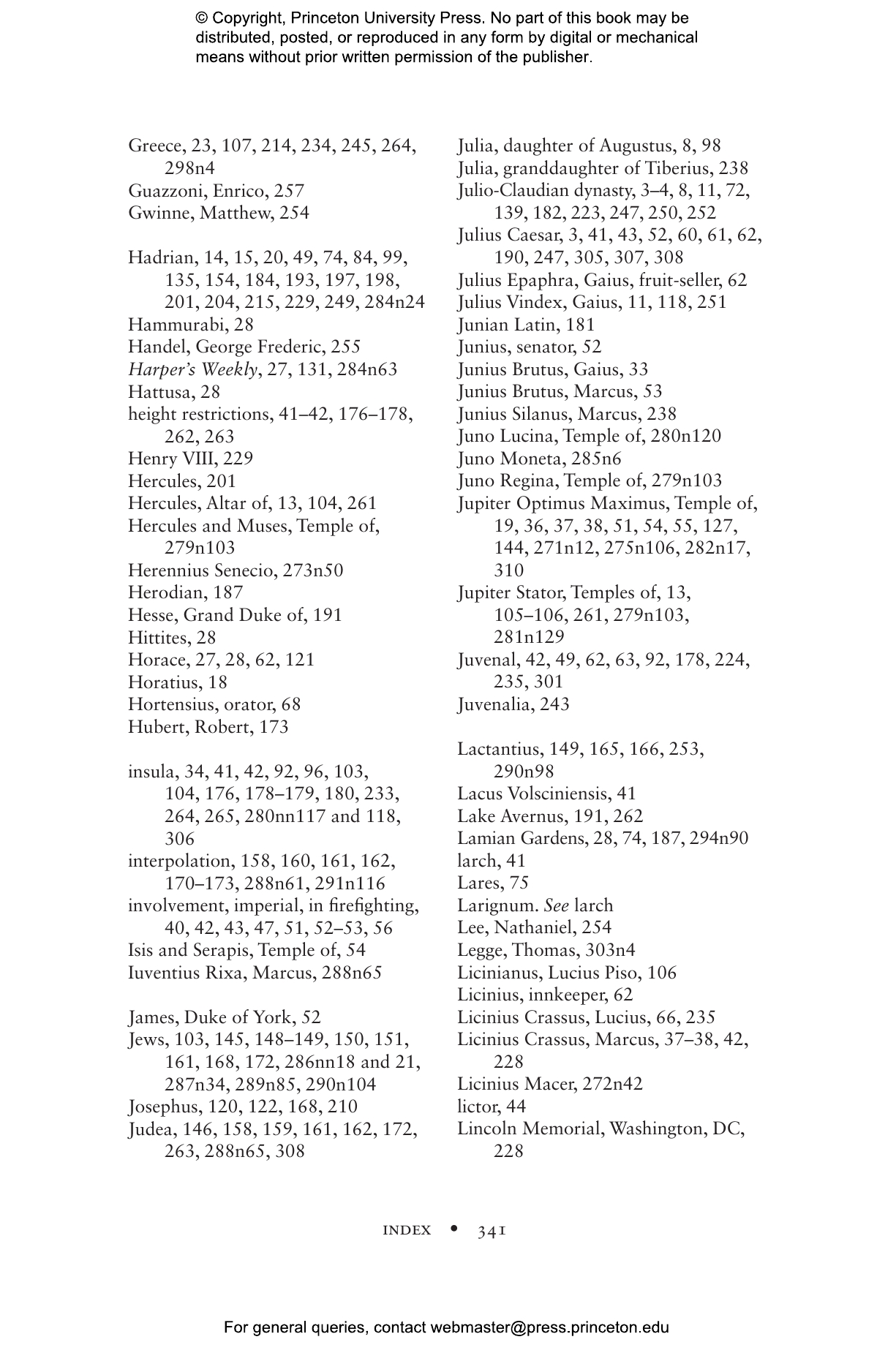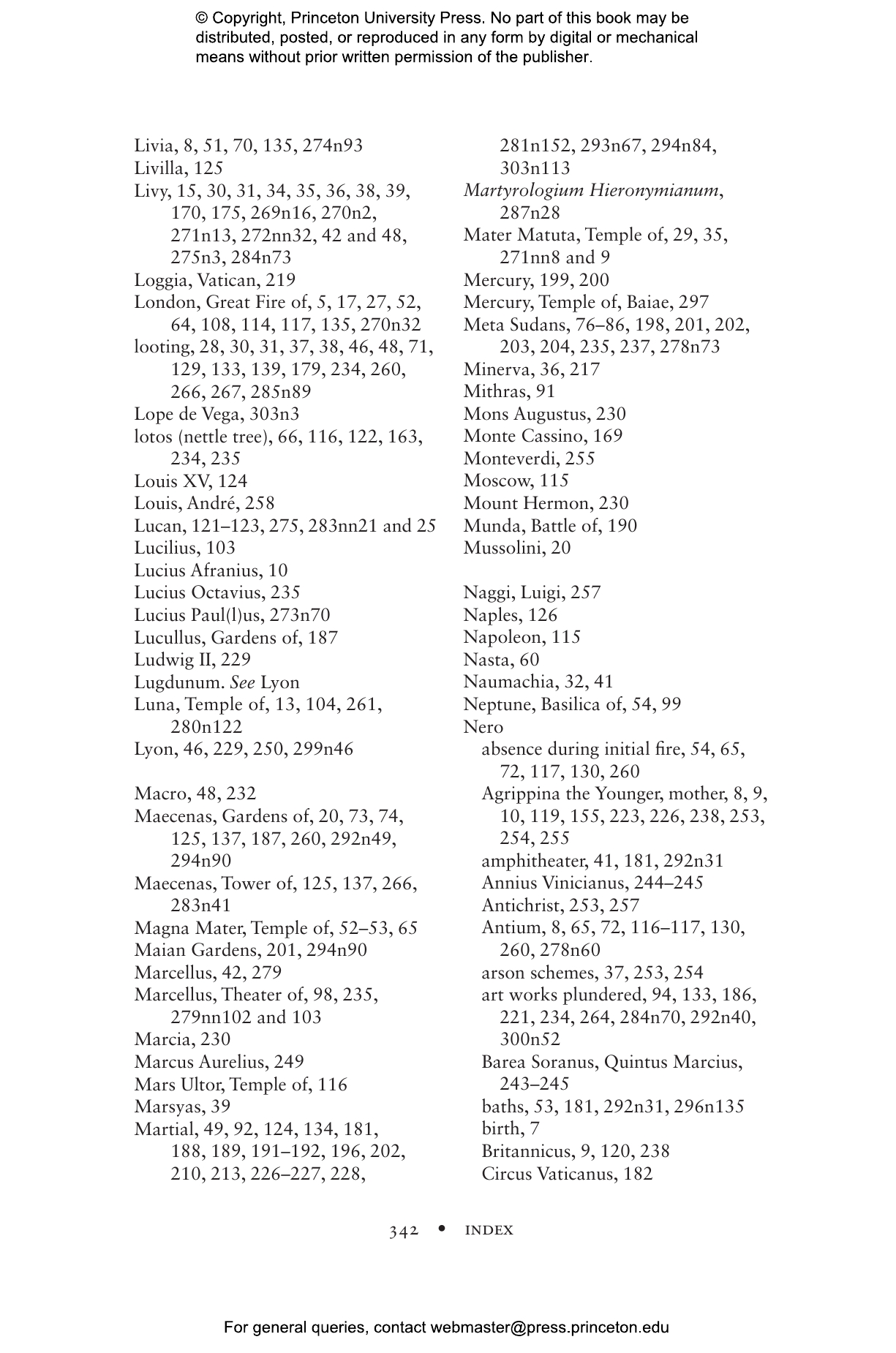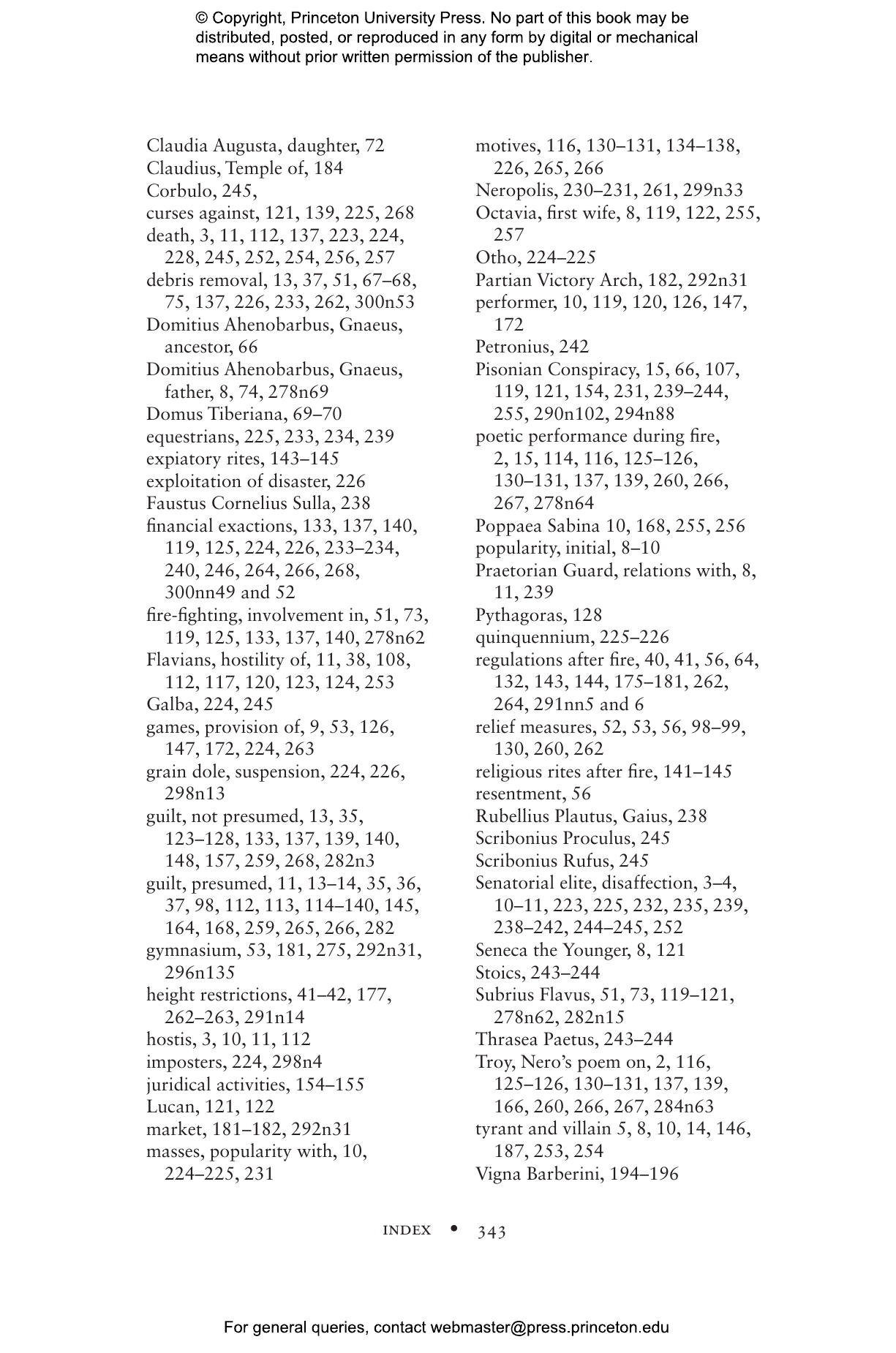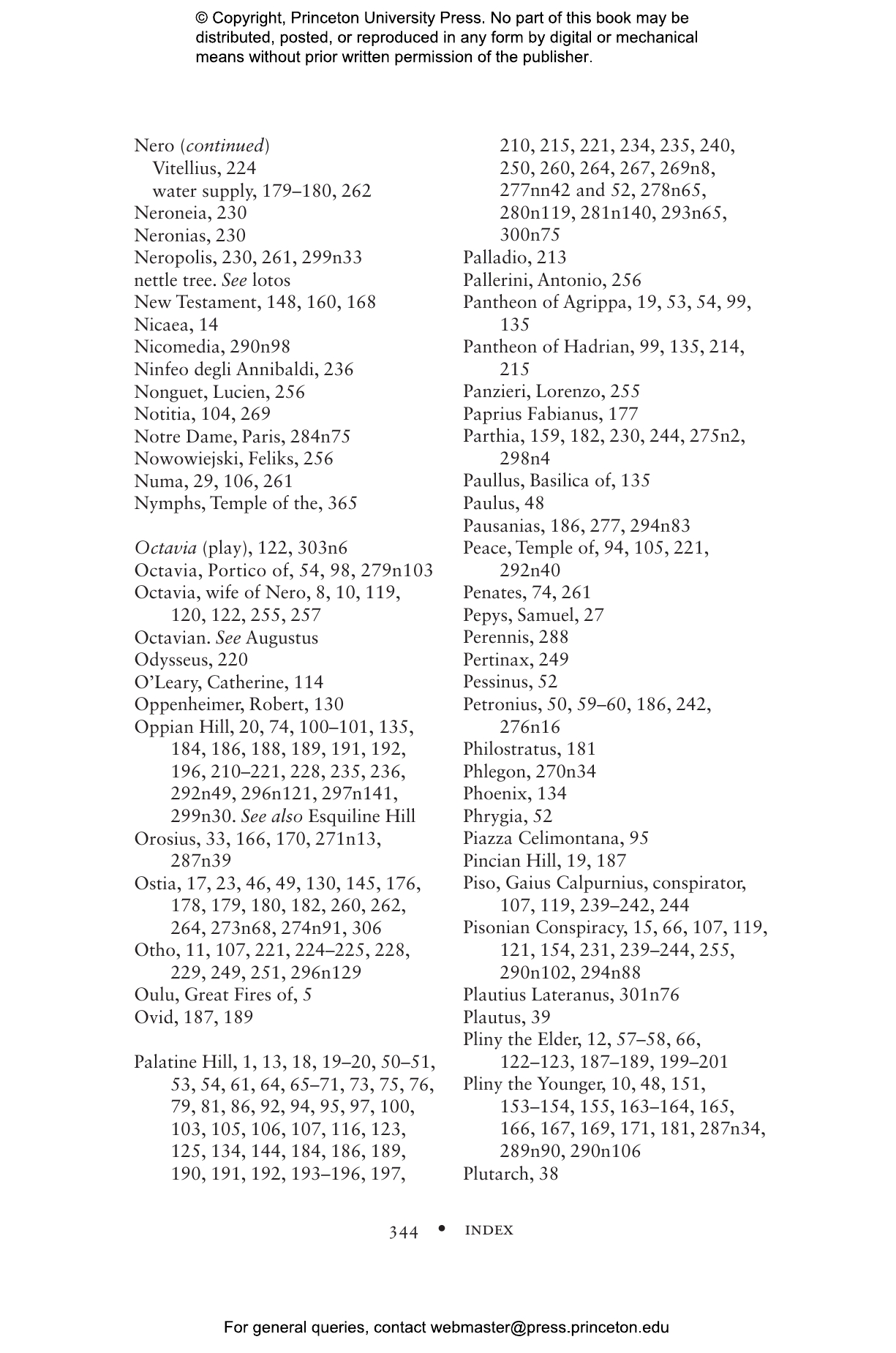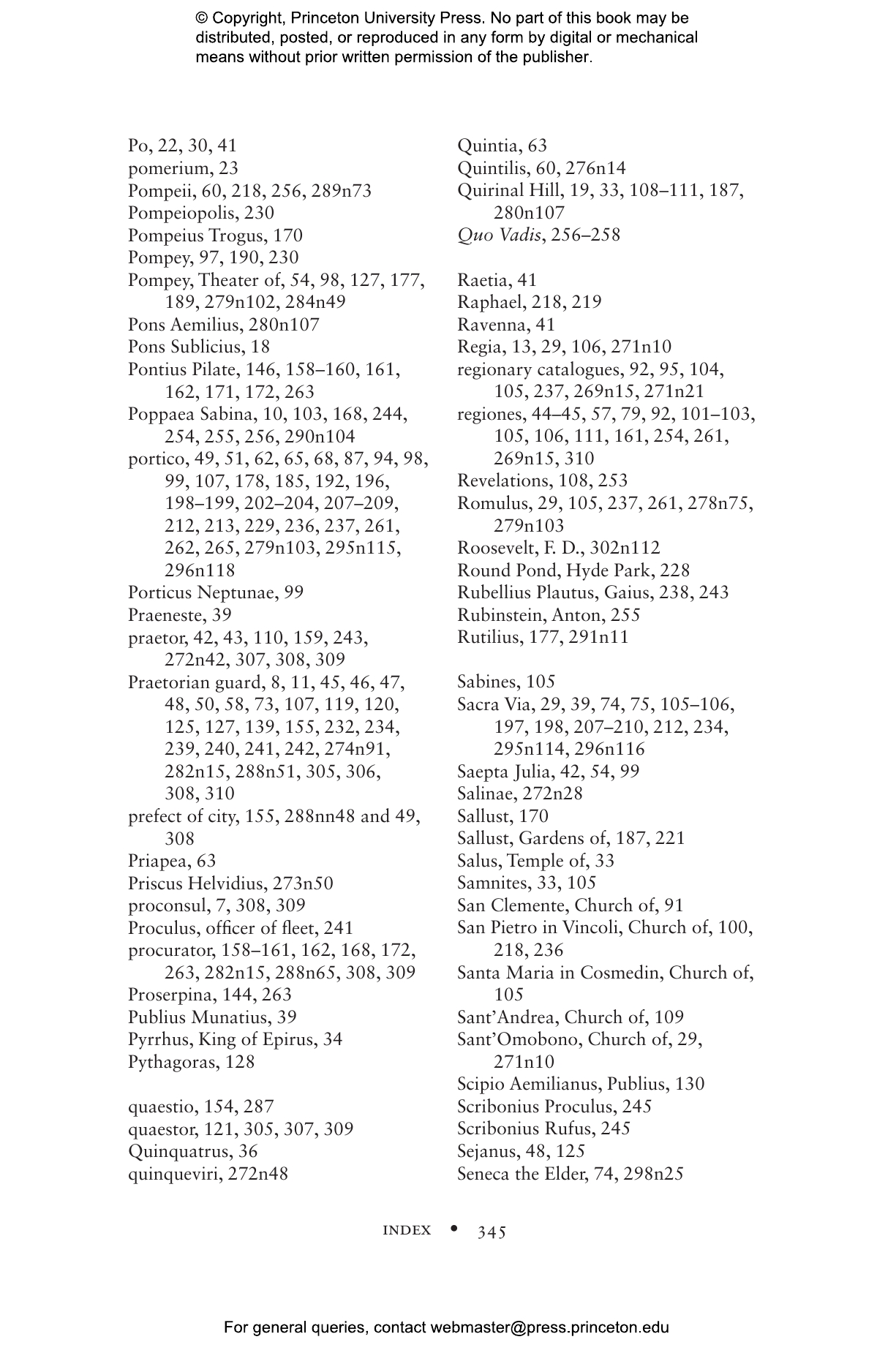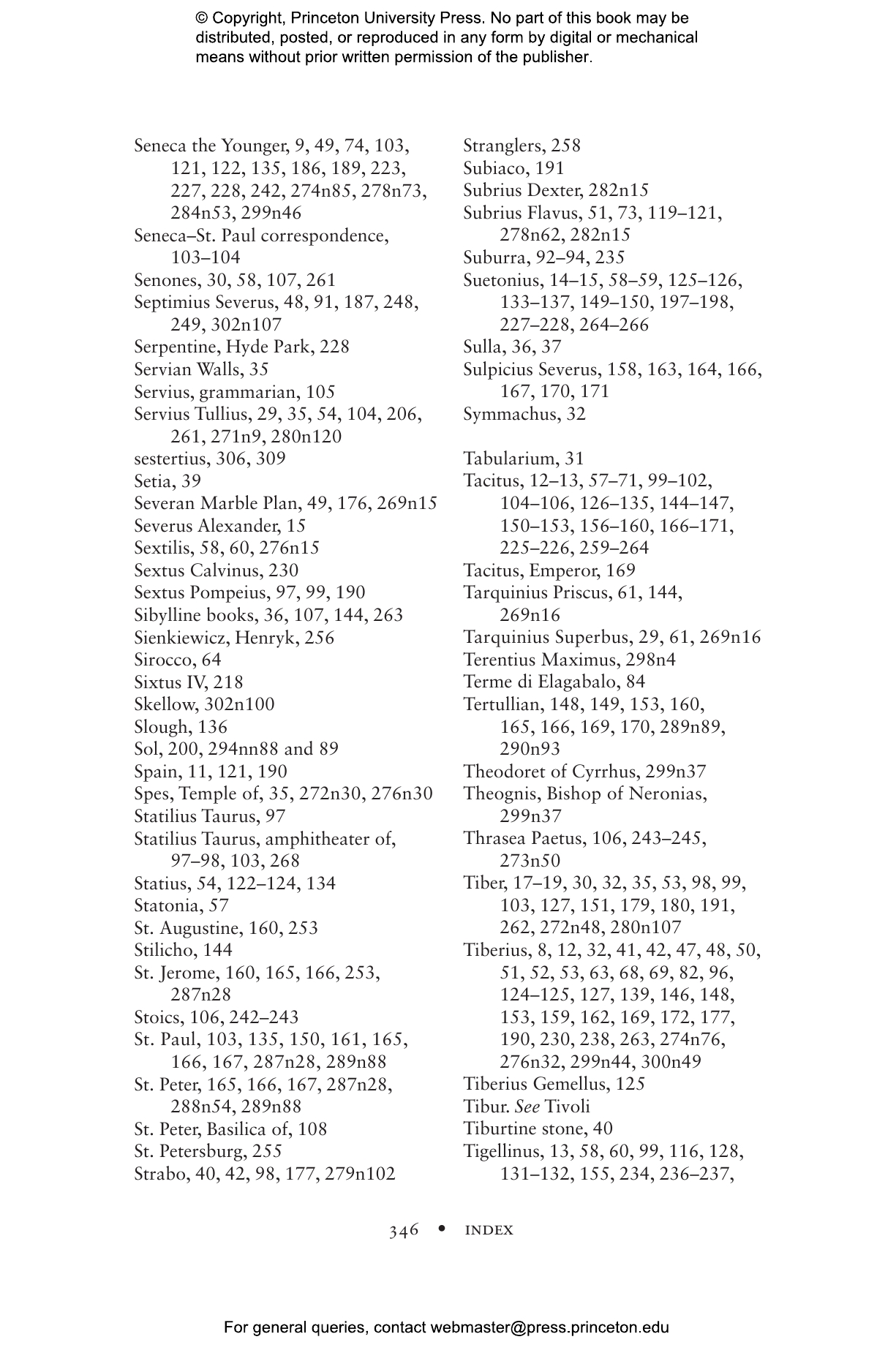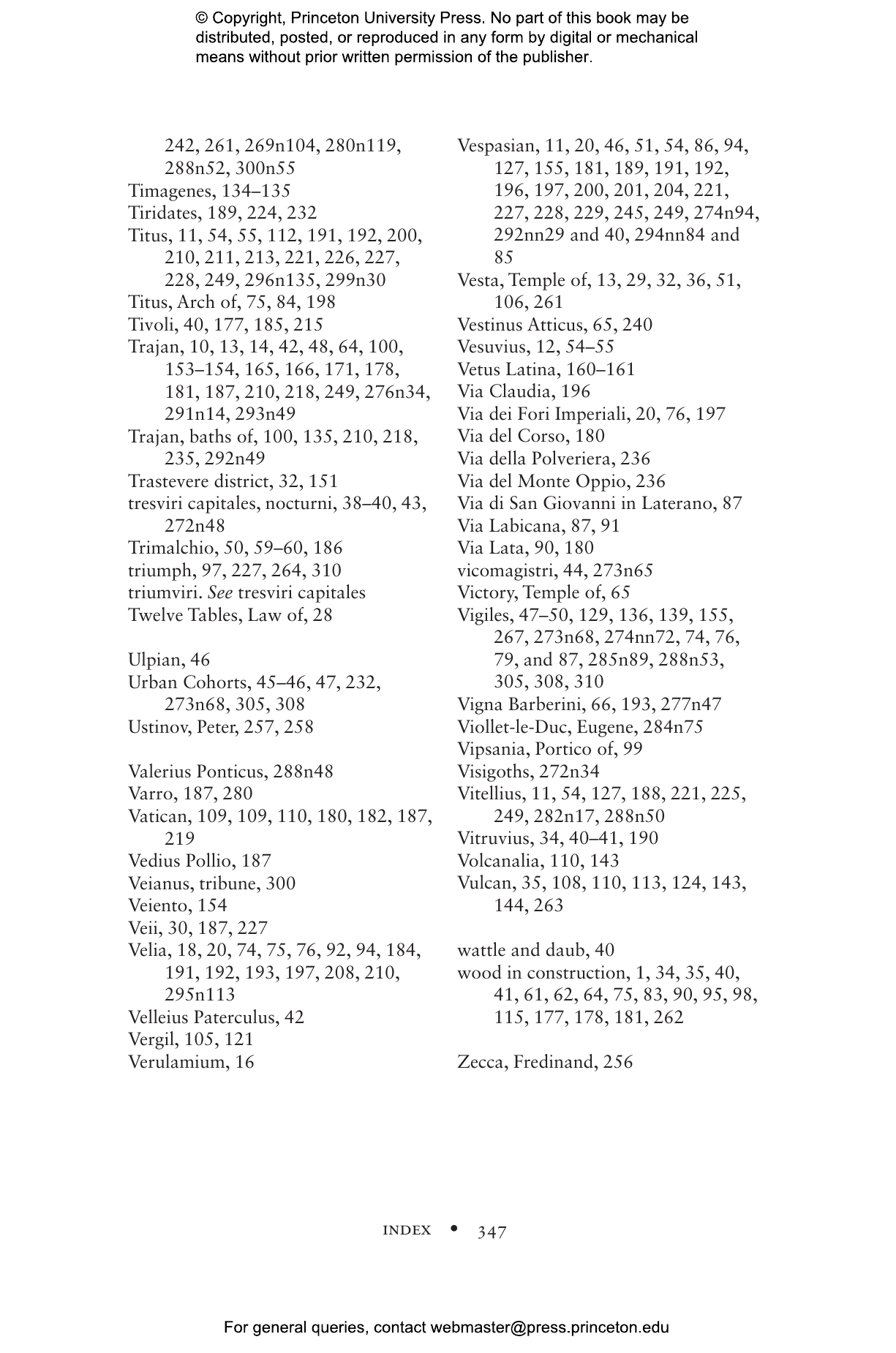According to legend, the Roman emperor Nero set fire to his majestic imperial capital on the night of July 19, AD 64 and fiddled while the city burned. It’s a story that has been told for more than two millennia—and it’s likely that almost none of it is true. In Rome Is Burning, distinguished Roman historian Anthony Barrett sets the record straight, providing a comprehensive and authoritative account of the Great Fire of Rome, its immediate aftermath, and its damaging longterm consequences for the Roman world. Drawing on remarkable new archaeological discoveries and sifting through all the literary evidence, he tells what is known about what actually happened—and argues that the disaster was a turning point in Roman history, one that ultimately led to the fall of Nero and the end of the dynasty that began with Julius Caesar.
Rome Is Burning tells how the fire destroyed much of the city and threw the population into panic. It describes how it also destroyed Nero’s golden image and provoked a financial crisis and currency devaluation that made a permanent impact on the Roman economy. Most importantly, the book surveys, and includes many photographs of, recent archaeological evidence that shows visible traces of the fire’s destruction. Finally, the book describes the fire’s continuing afterlife in literature, opera, ballet, and film.
A richly detailed and scrupulously factual narrative of an event that has always been shrouded in myth, Rome Is Burning promises to become the standard account of the Great Fire of Rome for our time.
Anthony A. Barrett is Distinguished University Professor Emeritus at the University of British Columbia and visiting professor at the University of Heidelberg. His many books include Caligula: The Abuse of Power and Livia: First Lady of Imperial Rome. He is also the coeditor of The Emperor Nero: A Guide to the Ancient Sources (Princeton).
"Intriguing. . . . A lucid analysis of Nero and the Great Fire, enhanced by Barrett’s clear, engaging style, his obvious love of his subject, and an extensive selection of maps, schematics and photographs. Historically minded visitors to Rome as well as Roman-history enthusiasts will appreciate the erudition and context with which he illuminates one of the great stories—and personalities—of the ancient world."—Diana Preston, Washington Post
"Barrett’s central and most timely theme is the role of rumour and conspiracy theory in accelerating political change. . . . What matters for Barrett isn’t so much whether Nero started the fire as what it meant to Rome to believe that he had."—James Romm, London Review of Books
"A thorough, high-quality work on Emperor Nero and the fire that destroyed Rome in 64 CE. . . . Sure to be the most enduring treatment of this major historical event for some time."—Kirkus Reviews, starred review
"Anthony Barrett has produced arguably the most comprehensive and detailed treatment of the fiery disaster. . . .Barrett’s work exemplifies the latest, most detailed and generously illustrated narrative about the Great Fire to date, and would be an asset on the shelf of anyone, scholar or enthusiast, interested in the archaeology and history of Rome."—Popular Archaeology
"[Rome Is Burning brings] together wide-ranging and up to date evidence to present the state-of-the-art view of the fire of 64, and its reception down the millennia in film and ballet etc., that will satisfy both scholar and interested layman."—Adrian Spooner, Classics for All
"Rome Is Burning is a lucid analysis of Nero and the Great Fire, enhanced by Barrett’s clear, engaging style, his obvious love of his subject, and an extensive selection of maps, schematics and photographs. Any person with even a passing interest in the history of Rome will find this book interesting and illuminating."—Dr. LF Ivings, Journal of Classics Teaching
“Was Nero responsible for the devastating fire of AD 64? Did he fiddle while Rome burned? And is it true that Christians were made scapegoats and suffered horrific punishment? With a meticulous but accessible analysis of the latest archaeological research and an expert reading of ancient accounts, Anthony Barrett tackles these questions head-on and makes a persuasive case for seeing the fire and its aftermath as a turning point in the fortunes of imperial Rome.”—Catharine Edwards, author of Death in Ancient Rome
“With its clear narrative and new and insightful interpretations of sources and evidence, Rome Is Burning is an exceptional book from a first-rate Roman historian.”—John Pollini, University of Southern California
“Rome Is Burning offers a clear and thorough reinvestigation of the Great Fire of AD 64 for scholars and general readers alike. It can be recommended not just as a reconstruction of the Neronian fire but also as a thoughtful exploration of how to do ancient history.”—Josiah Osgood, Georgetown University
